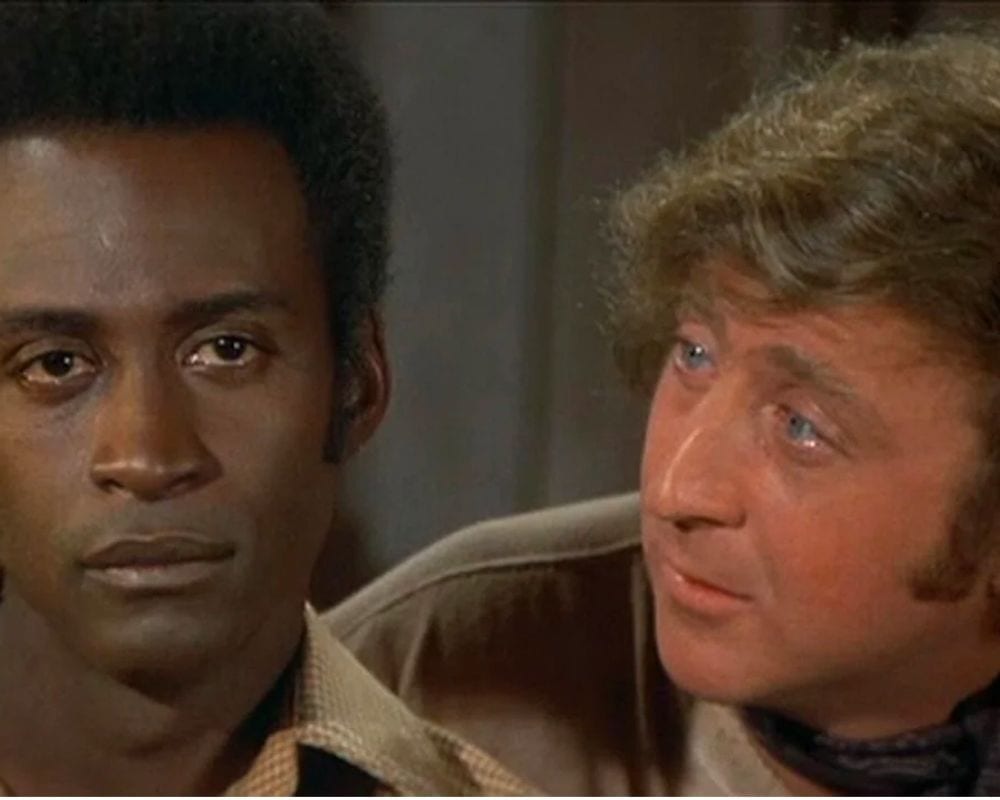1974 brought one of the funniest films ever made by Warner Brothers. It hit the silver screen and made huge waves, which still carries an impact to this day. Here are hidden facts about Blazing Saddles!
Bad Taste
Despite how hilarious Mongo’s knockout punch scene was considered, some viewers saw it as inappropriate. Animal rights activists were enraged with the treatment of the horse, despite the fact that in reality, no horses were injured. Still, it was argued that a lesser violent scene could have been made, which would not have made others get any ideas as was suggested in the film. Fortunately, the filmmakers did not have to harm any animals to film the scene, as they had horses trained to fall on command.
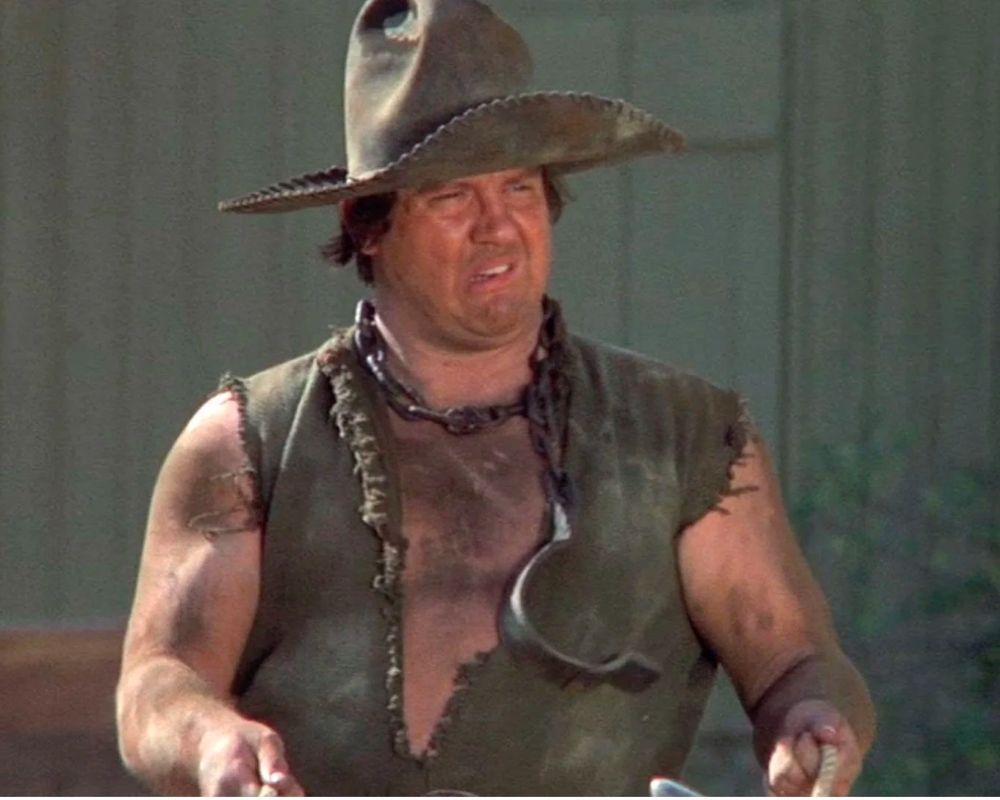
Down You Go
Film fanatics will remember the following scene very well: the brutish Mongo parked his horse in a no parking zone, and then was confronted by a fellow horse rider. Mongo then calmly walked over and clobbered the horse, and by doing so, he knocked them both to the ground. Apparently, Brooks did not simply make up this part out of thin air, but rather, it was inspired by a real-life story he once heard from his old boss, Sid Caesar.
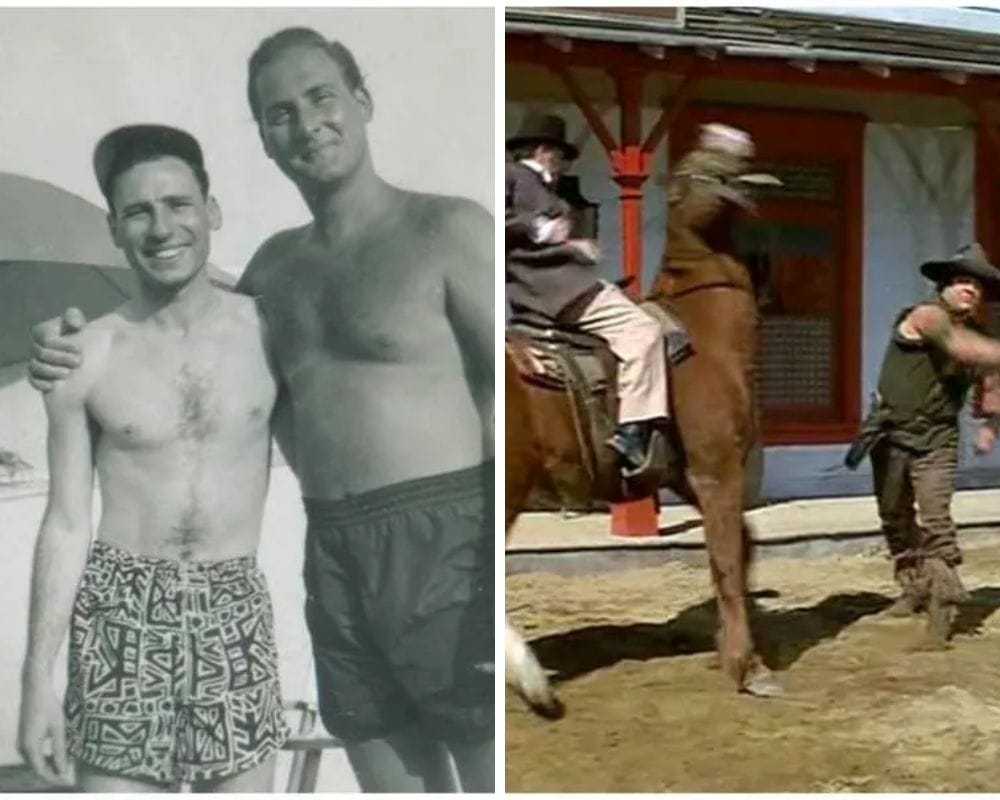
Sleeping With The Stars
For a comedy movie that involved cowboys’ flatulence, some of the actors took their roles very seriously. One of those was Slim Pickens, who wanted to truly be Taggart, the bully gang head who worked tirelessly to terrorize the Rock Ridge citizens from their town. Slim decided to really get in the mindset of his character, he would sleep outside, like a real cowboy. Not only that, he did it with his Winchester right by his side, reminding him always that he is an outlaw.
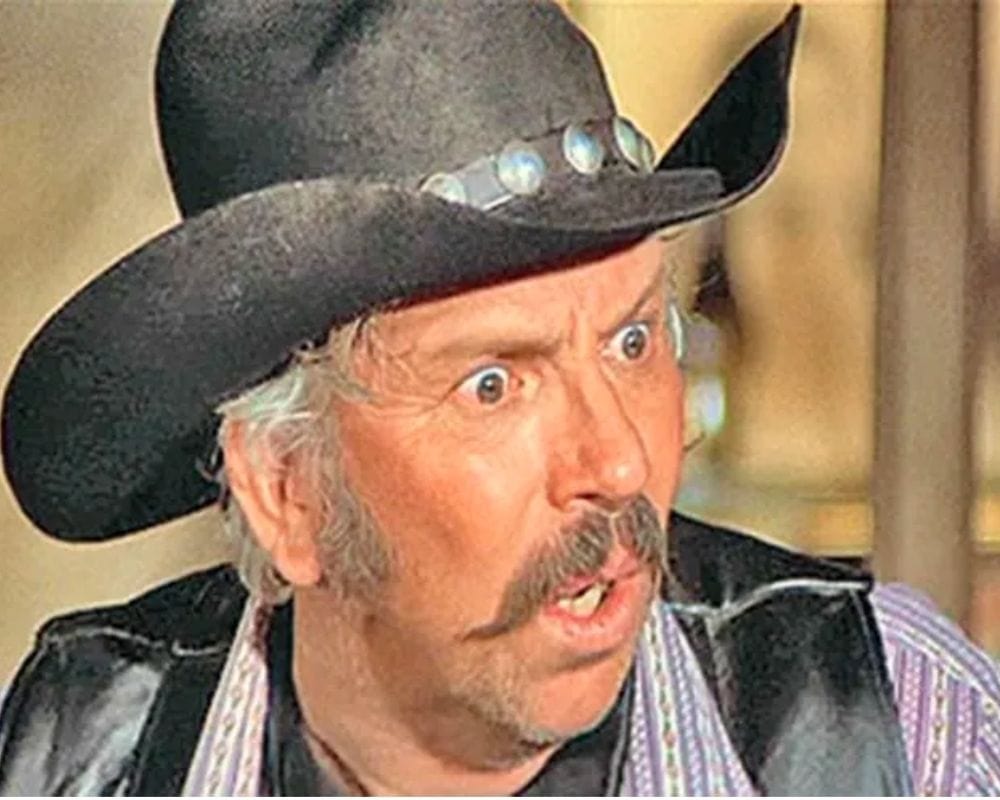
What’s In A Name?
One of the key details that the writers struggled to agree on was its title. Originally, Ten X was the working title for this movie, and is actually a reference to Malcolm X. However, this ended up being changed to Black Bart. Despite this change, the writers still didn’t like it, considering The Purple Sage as another potential name. Then Brooks was in the shower when he came up with the title Blazing Saddles. His wife loved it, and the rest was history.

Reach For The Sky
Believe it or not, Sheriff Bart was not a popular figure. Amazingly, in order to be let free by the townspeople, he held a gun to his head. Originally, Brooks got this idea from something that happened during his childhood. As a kid, Mel tried stealing a water pistol and a pack of gum from a store. When the clerk tried to stop him, little Mel pointed the “gun” at him, threatening that he would pull the trigger.
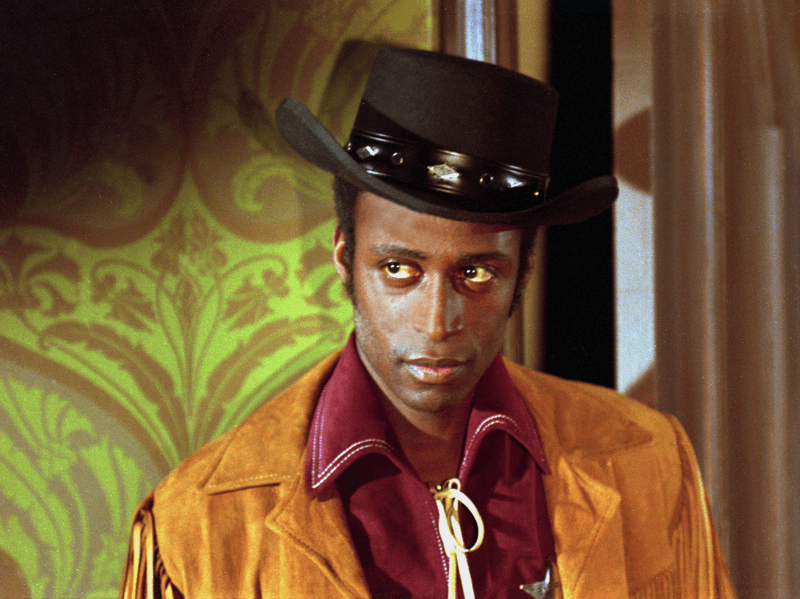
A Room Full Of Crickets
Warner Brothers believed that Brooks was capable of recapturing the magic he produced in the movie The Producers. However, upon early viewings, the movie was poorly received and executives from the studios were worried how not funny they found the movie. Nevertheless, Brooks was confident that the movie would do well and that they just needed to unveil it to the masses. Eventually, Warner Brothers agreed to release the movie and they were happily proven wrong based on early reactions.
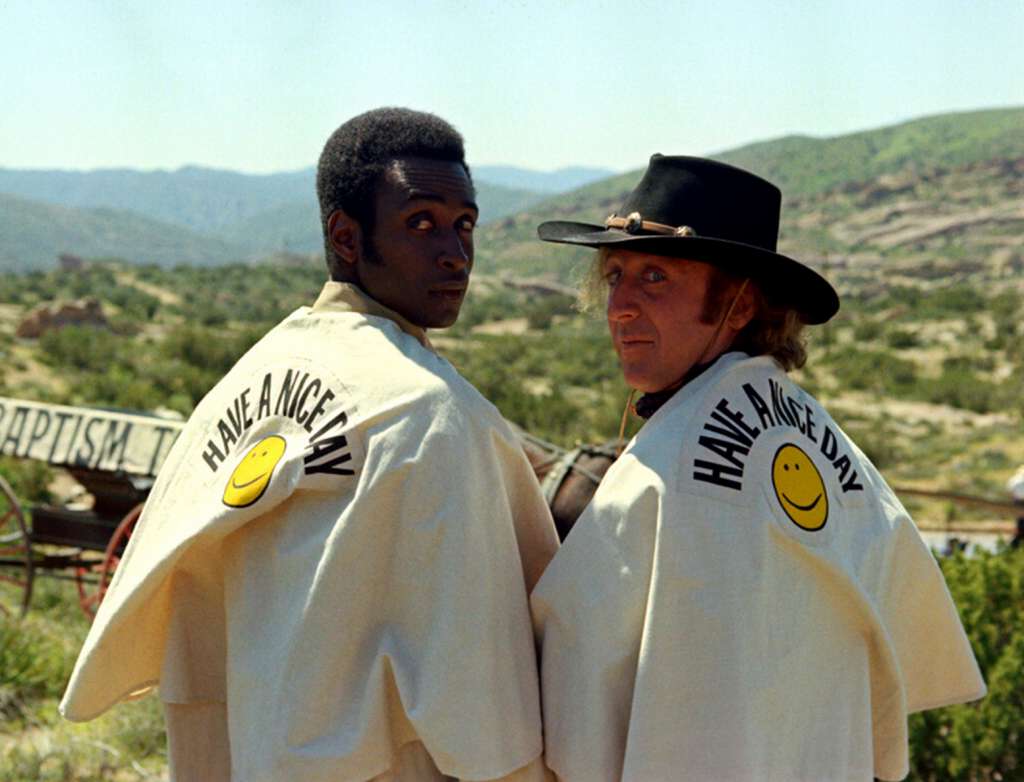
A Stingy Studio
Before release, Brooks was in a position where he had to work hard to convince the studio about the movie’s potential. “It’s simply too vulgar for the American people,” the head of distribution said. “Let’s dump it and take a loss.” This is when the president John Calley decided that the movie should initially be released in certain cities. These included Los Angeles, Chicago, and New York. Fast forward to the end of the summer, and it was the studio’s biggest blockbuster.
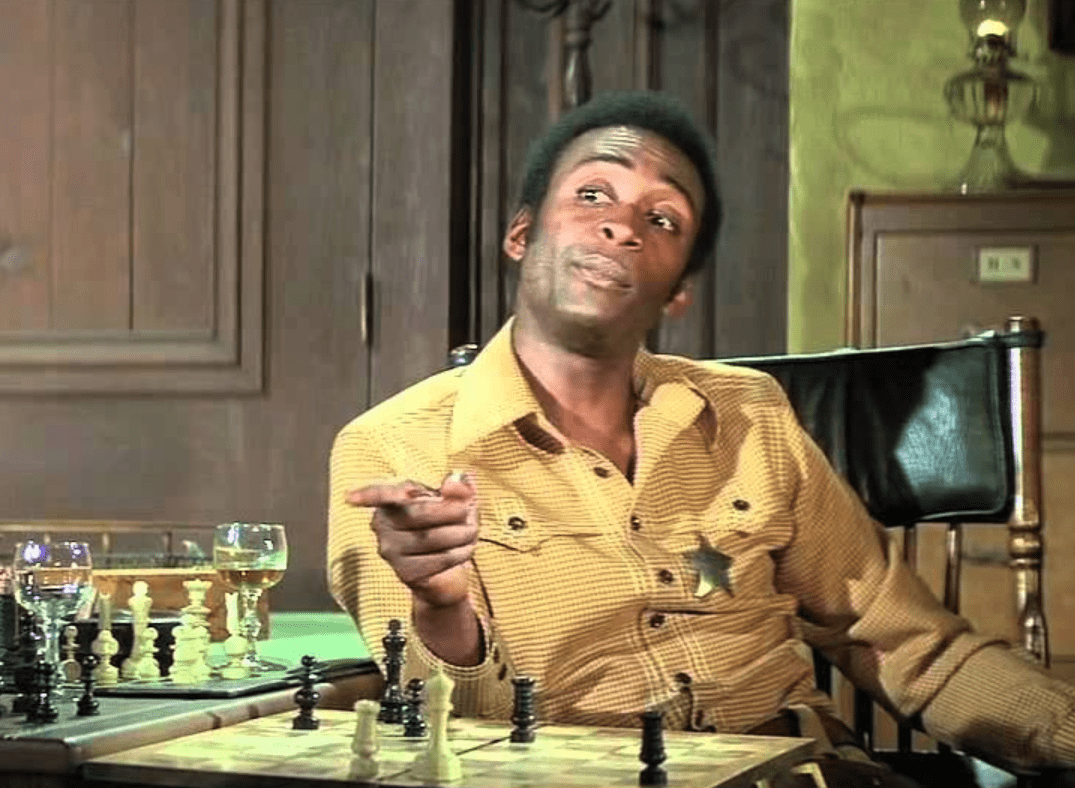
The Gridiron Gang
Harvey Korman’s Hedley Lamar may have failed to remove Sheriff Bart from his post with his dispatch of Mongo. However, Alex Karras was a very successful football player in his heyday. Karras, played in NFL for a staggering 12 seasons. Karras was part of the All-pro team nine times and was even part of the NFL’s All-Decade team in the 60’s. Also, he was a four-time Pro Bowler, but after leaving the Detroit Lions, pursued a career in acting and initially joined cast of Webster.
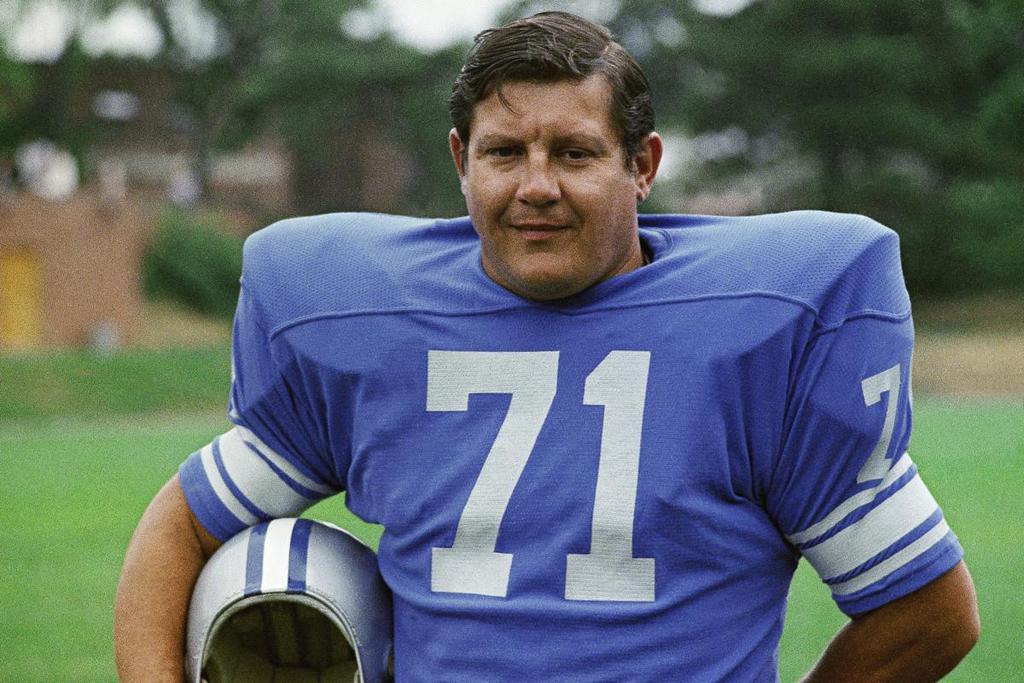
Your Name Is My Name
Mel Brooks had written the perfect antagonist for Blazing Saddles, naming him Hedly Lamarr. Unfortunately though, his character’s name bore a striking resemblance to the name of a well-known actress who had been on contract with MGM from the 1930s to the 1950s. Hedy Lamarr was not impressed by the resemblance to her own name, which Harvey Korman had joked would cause a lawsuit. It did, but the pair were able to settle out of court.
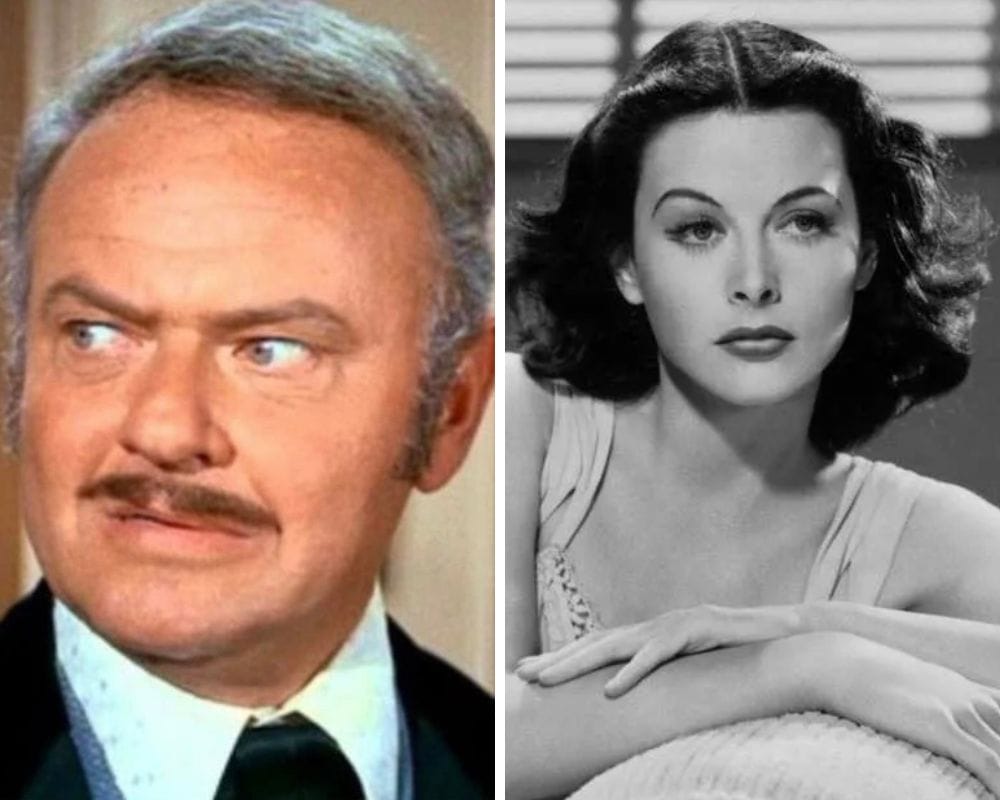
There’s Magic In The Air On Broadway
After the popularity of the Broadway production of The Producers, he was asked about putting Blazing Saddles on The Great White Way. Brooks has a vision of how to do it, but he worries the risqué material won’t fly anymore. He said, “It’s pretty dangerous stuff, using the N-word. I wouldn’t shy away from it, but I don’t know if I could get away with it. I got away with it then. I don’t know if I could get away with it today,” he said.
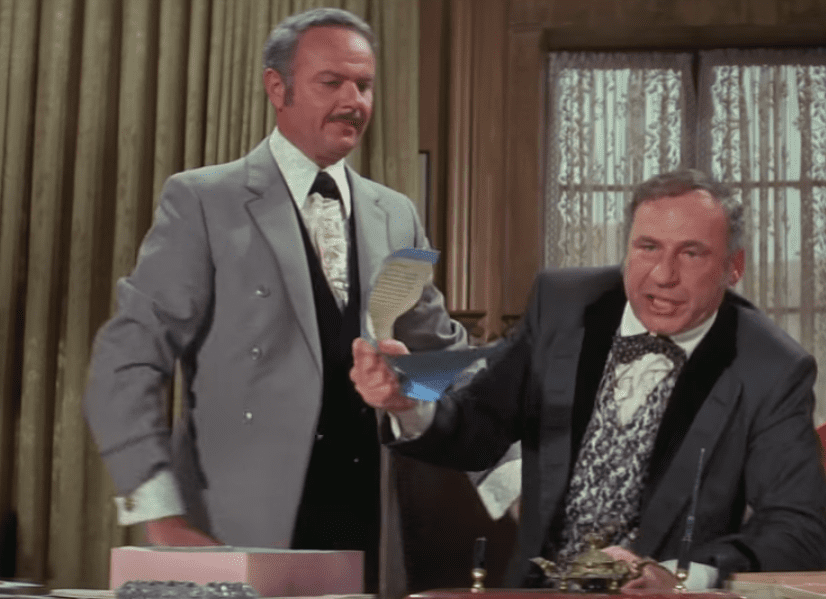
If I May Say So Myself
Mel Brooks has won a lot of accolades for the hilarious Blazing Saddles. Without worrying about modesty, he couldn’t help but say that he thinks it’s one of the funniest movies of all time. In comparing it to Some Like It Hot, Brooks opined, “Billy Wilder’s film is extremely funny, but scene for scene, there are more laughs in my movie. It’s not right for me to say so, but I really think this could be the funniest motion picture ever made.”
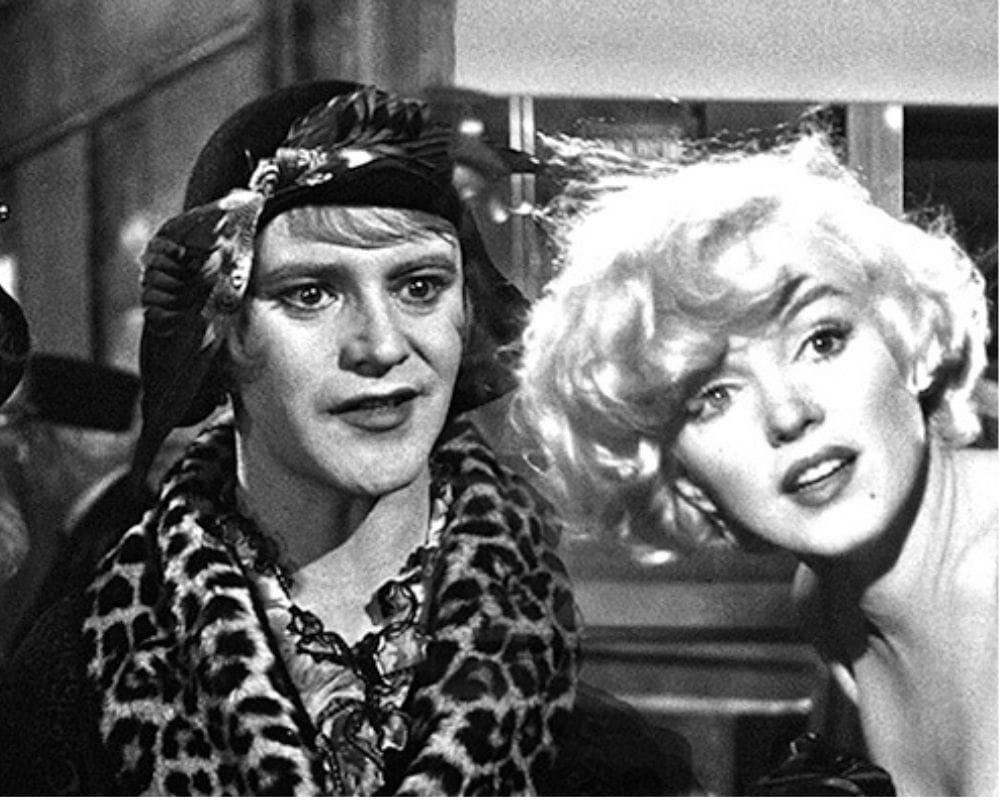
Legging It Out
Brooks had had his eye on Madeline Kahn when he created the role of Lili von Shtupp, as he knew she had the comedic chops. However, when she came to read for the role, Brooks asked to see her legs. Kahn assumed his intentions were less than pure and said, “Oh, you’re that kind of guy.” Brooks then clarified that the character was a spoof on Marlene Dietrich and therefore needed nice legs. She understood, but warned him, “No touching!”
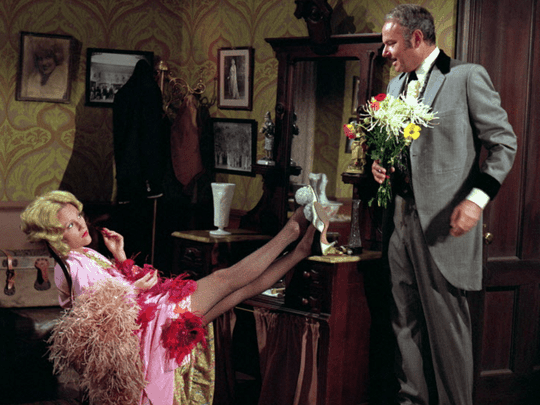
The Choice Pryor To Cleavon
Originally, Mel Brooks wanted to cast comedian Richard Pryor as Sheriff Bart. Mel was superlatively impressed with the comedian, saying he was “the most blessed with talent.” However, Pryor is a very controversial person, as he was very vulgar in his material, and also had substance abuse issues that almost ended in him burning himself to death. Although Brooks still wanted Pryor despite all this, the studio suggested Cleavon Little. When Brooks saw how perfectly Little delivered the lines, he gave Cleavon the part.
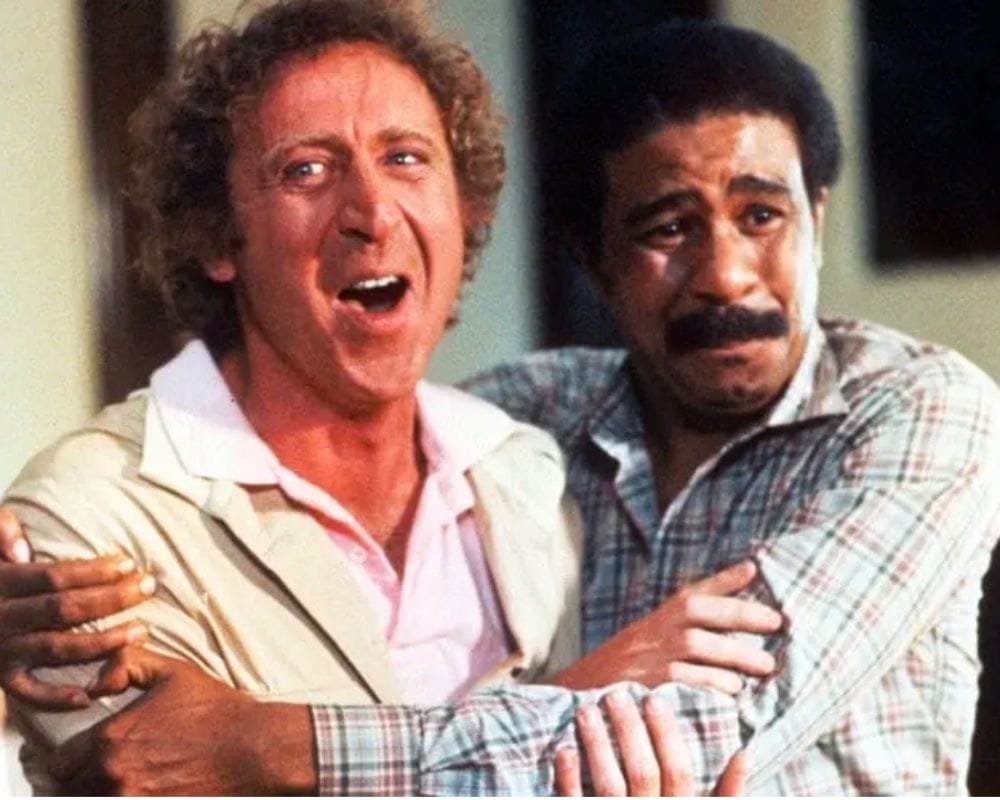
I Can’t Say That, Can I?
Burton Gilliam played Lyle, one of the bad guy’s henchmen. One of the lines in the script had Lyle calling Sherrif Bart a racial slur. The word is so sensitive, and Burton did not feel comfortable saying it. However, Little understood that it was all business, and gave Gilliam the go-ahead. However, Little did say: “if I thought you would say those words to me in any other situation we’d go to fist city, but this is all fun. Don’t worry about it.”
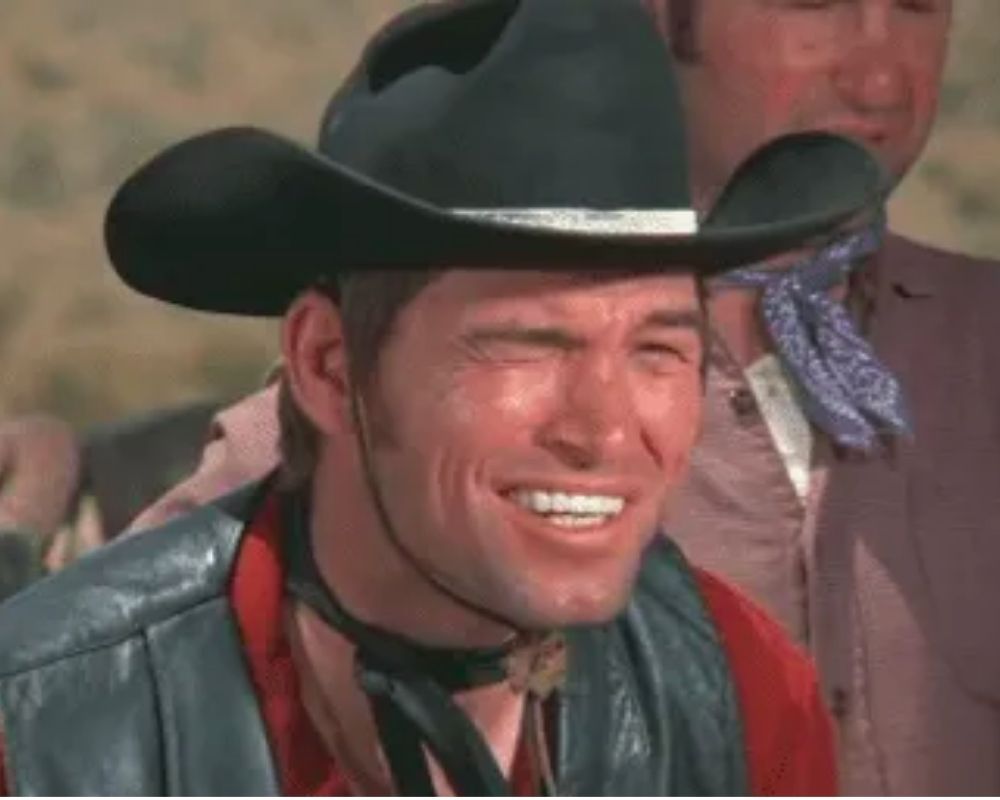
On The Cutting Floor
Mel Brooks pushed boundaries when it came to comedy. This delighted everyone with a sense of humor, but worried the studio. They urged Brooks to cut scenes, but Mel only cut the most risque one. It was when Bart and Lili von Shtupp are together in her dressing room. As she tempts him, she blows out the candle, and asks “Is it true what they say about you people?” and Bart shoots back “I hate to disillusion you, ma’am, but you’re sucking on my arm.”
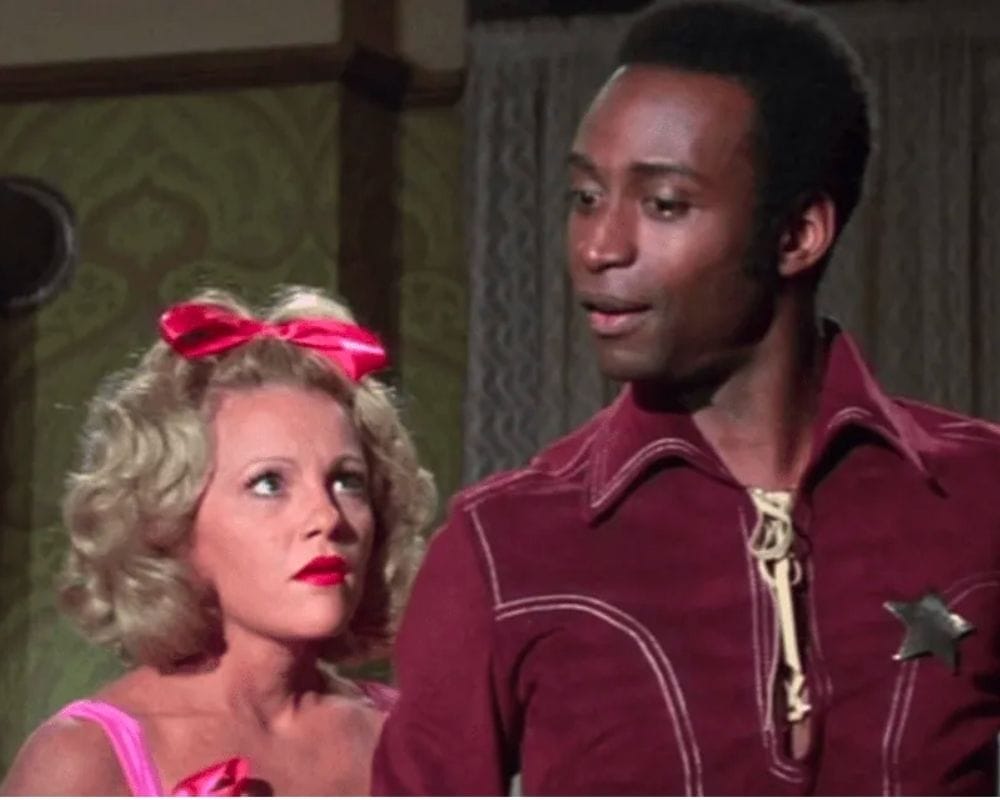
Calling On The Duke
When you make a parody, you want to include a nod to the original. That’s why Mel figured that he should include legendary Western actor John Wayne in his movie. Apparently, the two met by chance on the Warner Brothers lot and John told Mel he had heard about his movie. Mel wrote a short bit for Wayne, but John eventually declined, saying “Naw, I can’t do a movie like that, but I’ll be first in line to see it!”
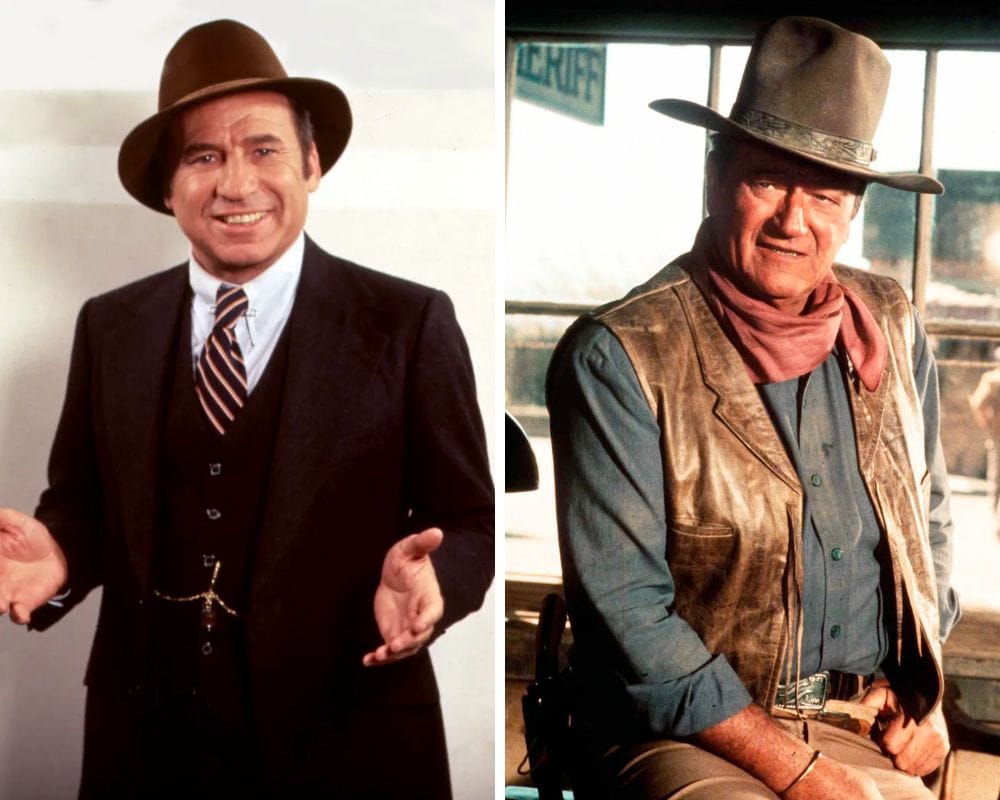
Quid Pro Quo
The legendary Gene Wilder was a hilarious comedian who first started collaborating with Mel on a little movie called The Producers. When Mel wanted to put Gene in Blazing Saddles, Wilder negotiated a deal. Gene said he would be in Mel’s film if Brooks would look over a script he started writing and make that into a film as well. Mel agreed. That script? It was for Oscar-nominated film Young Frankenstein.
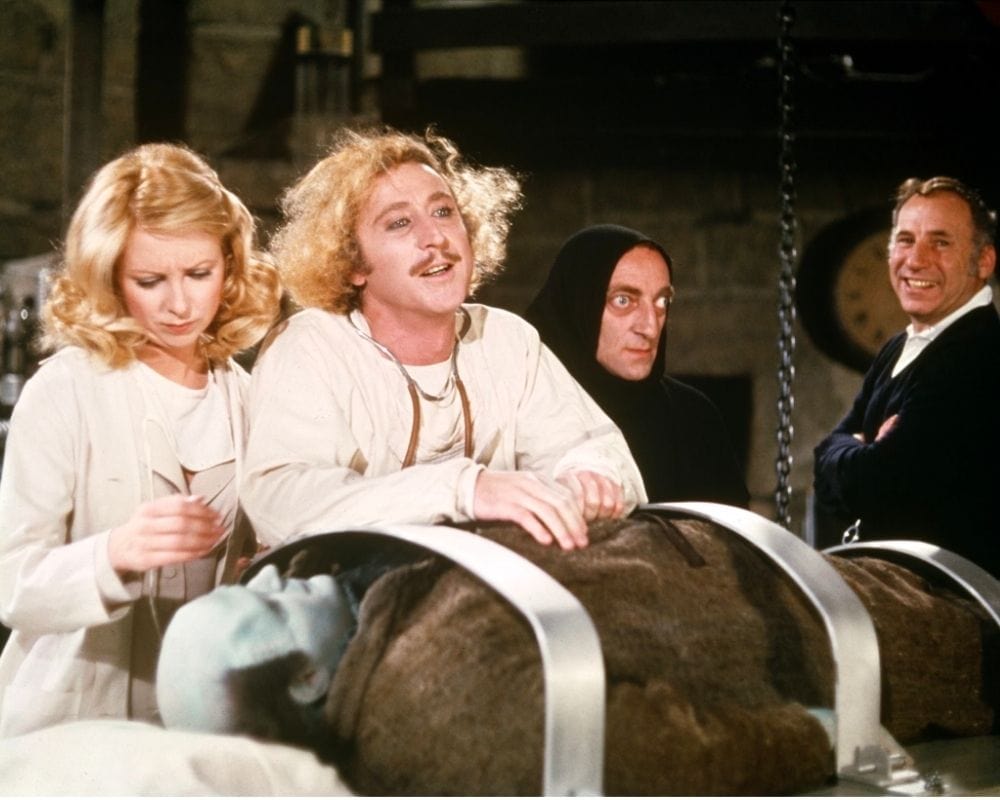
Who Passed Gas?
Mel’s humor many times comes in the form of slapstick. He has people banging their heads on windowsills, falling down, and generally getting hurt. He was also a trailblazer in another slapstick gag, which was including farting sounds in Blazing Saddles. The infamous scene plays on the trope of cowboys sitting around a campfire eating baked beans and drinking coffee. Mel thought that it was inevitable that the cowboys’ stomachs would gurgle, and he decided to made it happen on screen.
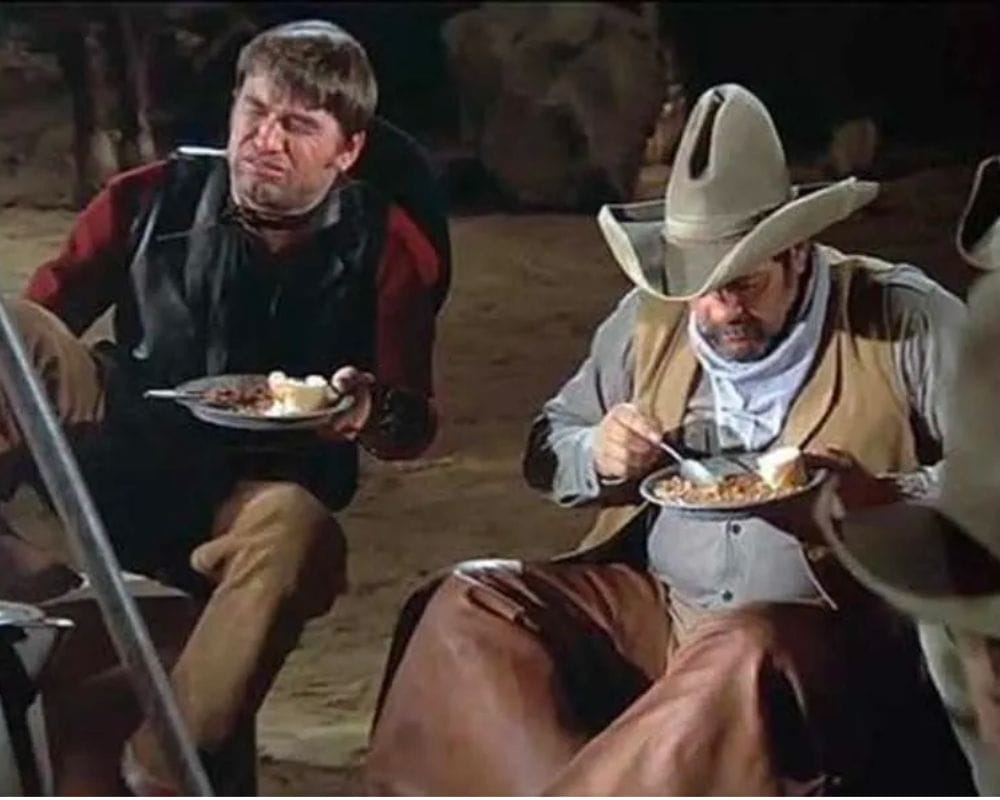
Musical Half-Truths
Sometimes, to get what you want, you need to tell a white lie. This is what Mel Brooks did to Frankie Laine, the composer of the score of Blazing Saddles. Laine was a singer and songwriter for as longer than some people even live- 75 years. When Laine started composing, he believed that the Western was dramatic, rather than a parody. Mel did not reveal to Laine that it was a comedy, as Brooks worried Laine would change the song if he knew the movie was funny.
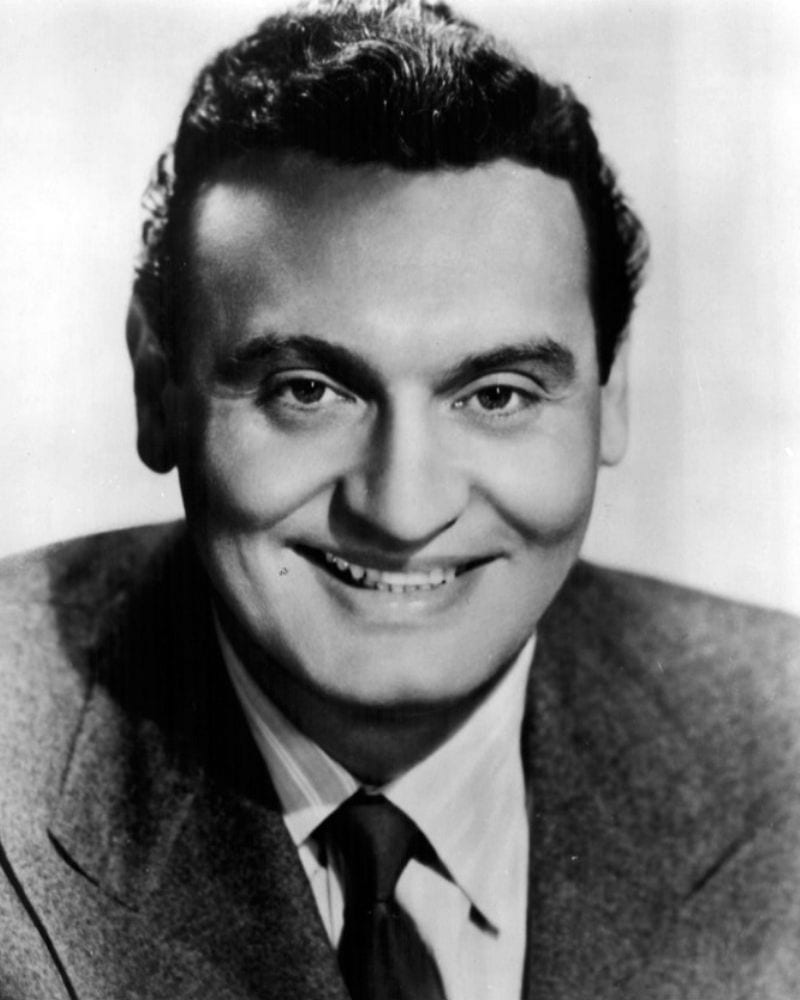
An Unlikely Appearance
Movie premieres are known to be glamorous and saturated with the most expensive tailored suits and A-listers popping out of fancy rides. However, for this film, guests arrived on horseback, to match the film’s theme.
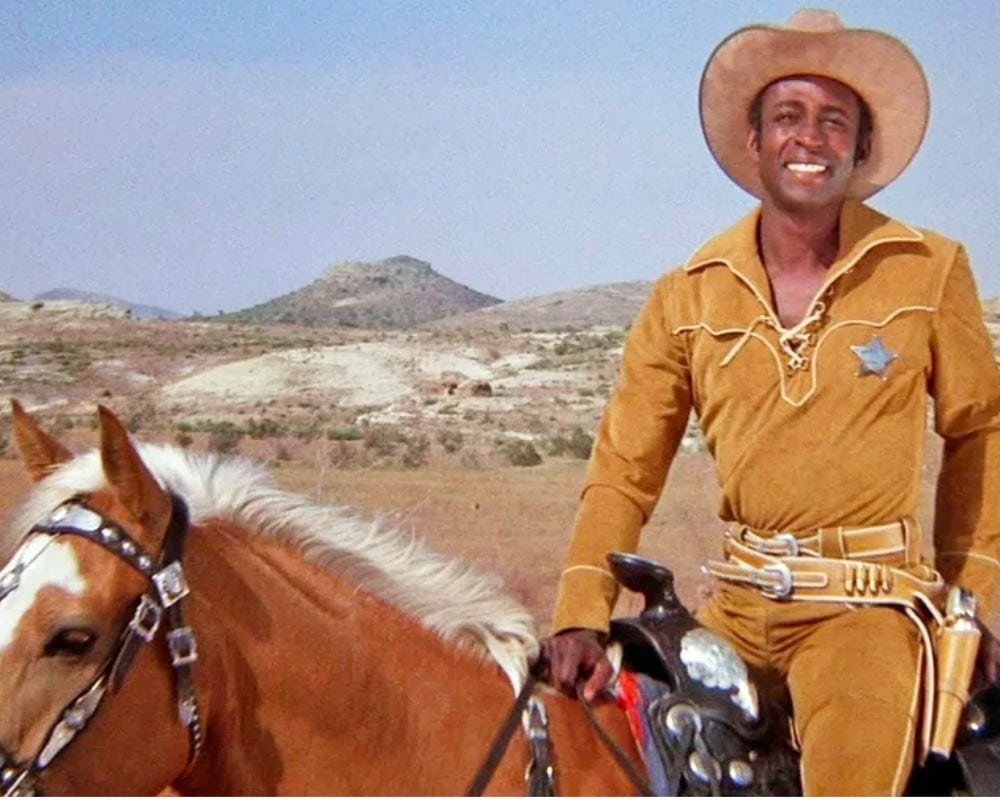
The Uninvited Extra
In an iconic scene that closes out the film, Sheriff Bart and the Waco Kid are pursued through the backlot on which the Warner Brothers movie was shot. They run through the gates, breaking the suspension of disbelief, and everyone turns right, except for a singular person. That guy was a random pedestrian who’d found himself on set, and didn’t understand the instructions to leave. Brooks had him sign off on the appearance and let him stay.
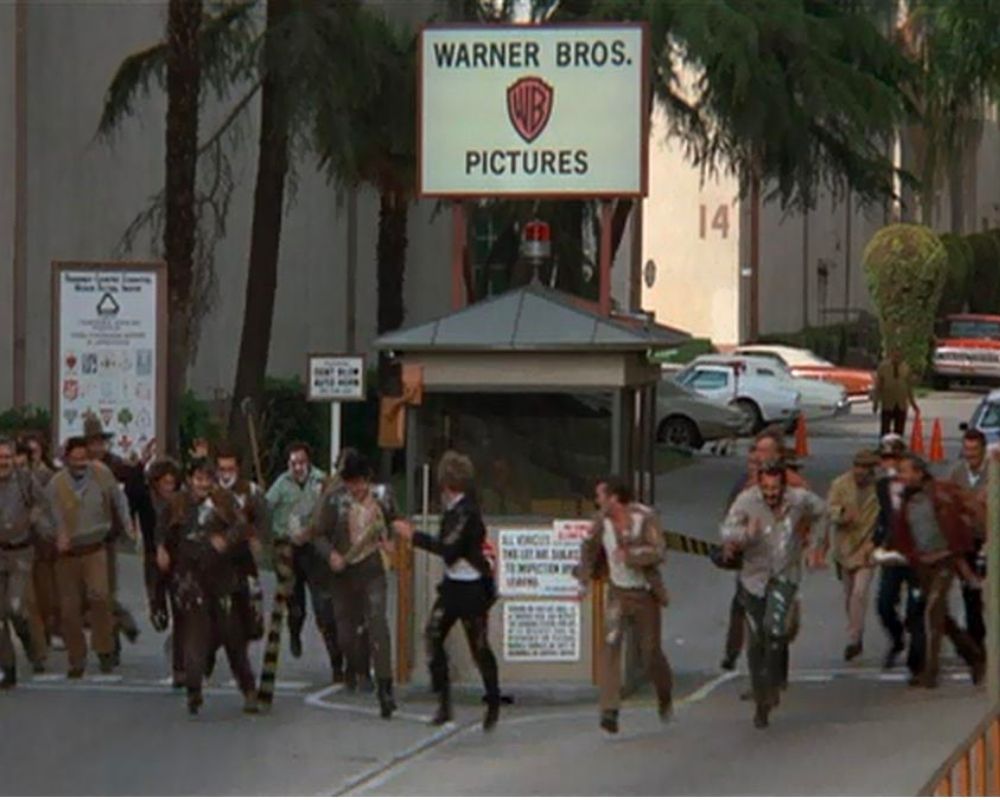
Hidden References
Mel Brooks considered every word carefully when writing the script for Blazing Saddles. Every word was written with intent, whether it was meant to make you laugh, cry, or just enhance the plot in some form. A great example of this is when Mongo rides into town on his horse, and you hear a Mexican man say, “Mongo! Santa Maria!” This line is a reference to Mongo Santamaria, a famous Cuban jazz musician, added specifically by Brooks for that reason.
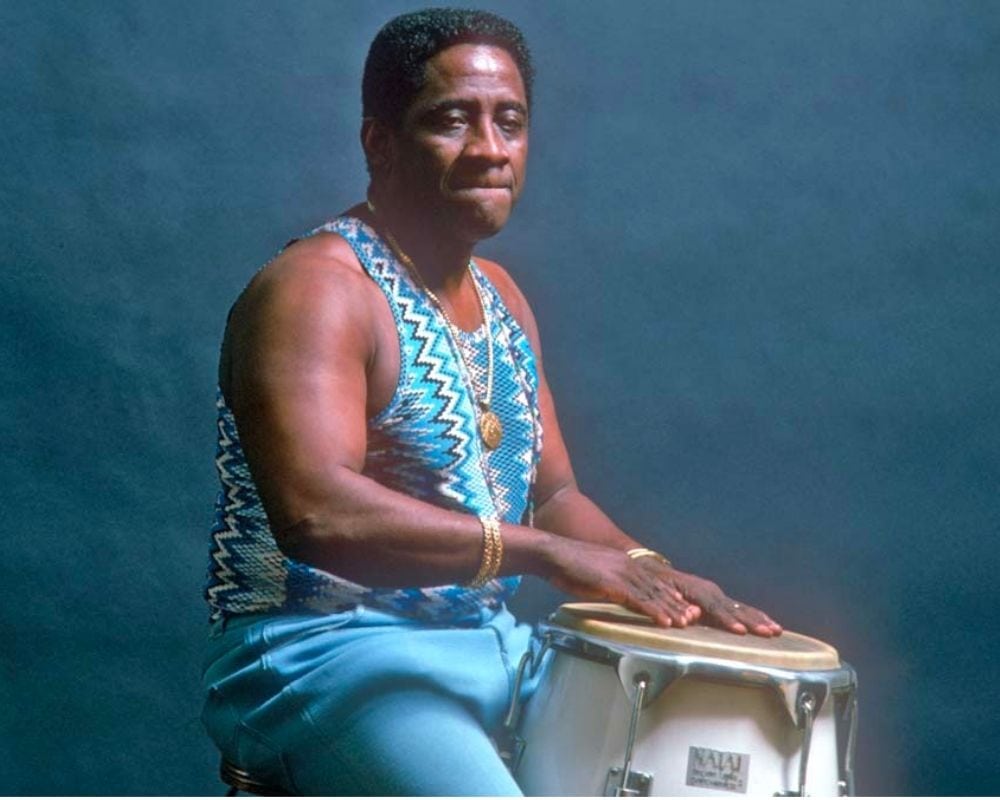
A Mel Brooks Sing-A-Long
In the scene where Hedley Lamarr and his men ride into a fake town set up by the Sheriff and Waco Kid toward the end of the film, there is a brief moment where the camera cuts away from the scene. As they ride into town, the camera turns to Lilly von Schtupp and some German soldiers who are filmed singing a drinking song. That drinking song that they were singing was the same song Gene Wilder and Zero Mostel sing with Kenneth Mars during The Producers.
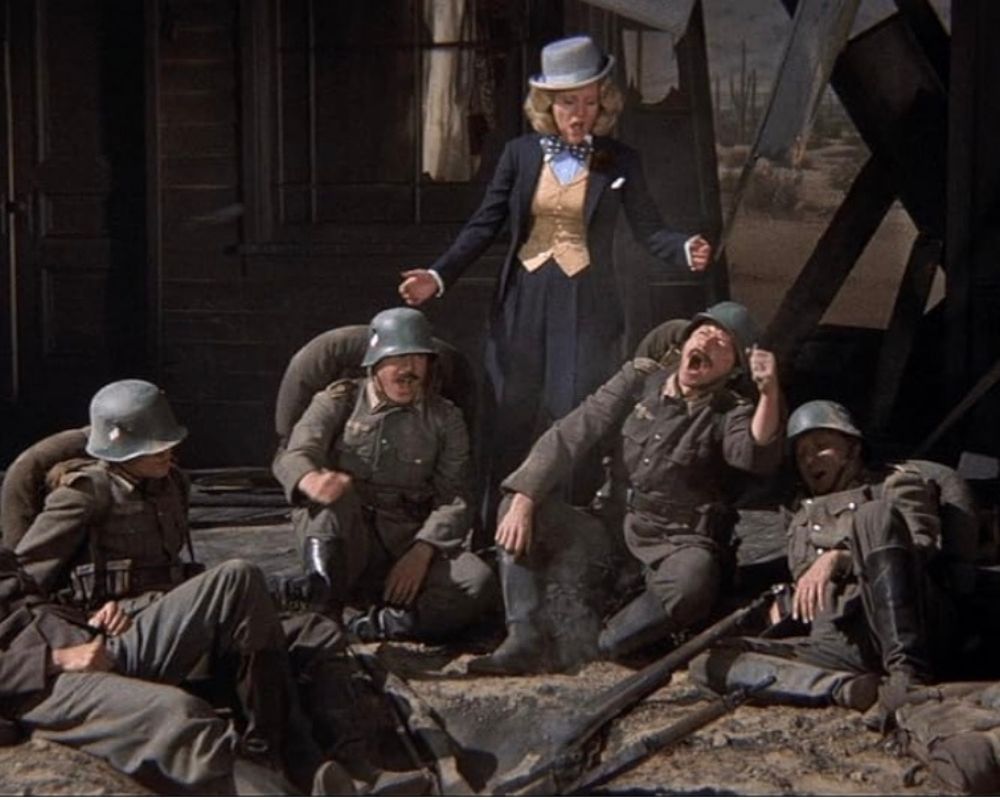
A Chocolate Covered Treat For Life
Product placement in a film can go a long way, and this was the case after Harvey Korman stops to buy concessions at the movie theater at the end of the film. Amongst all the chaos, he stopped to buy a box of Raisinets, and Brooks admitted that this led to an increase in sales of the product. In 1975, he told Playboy magazine, “We mentioned Raisinets in Blazing Saddles, and now the company sends me a gross of them every month. A gross of Raisinets!”
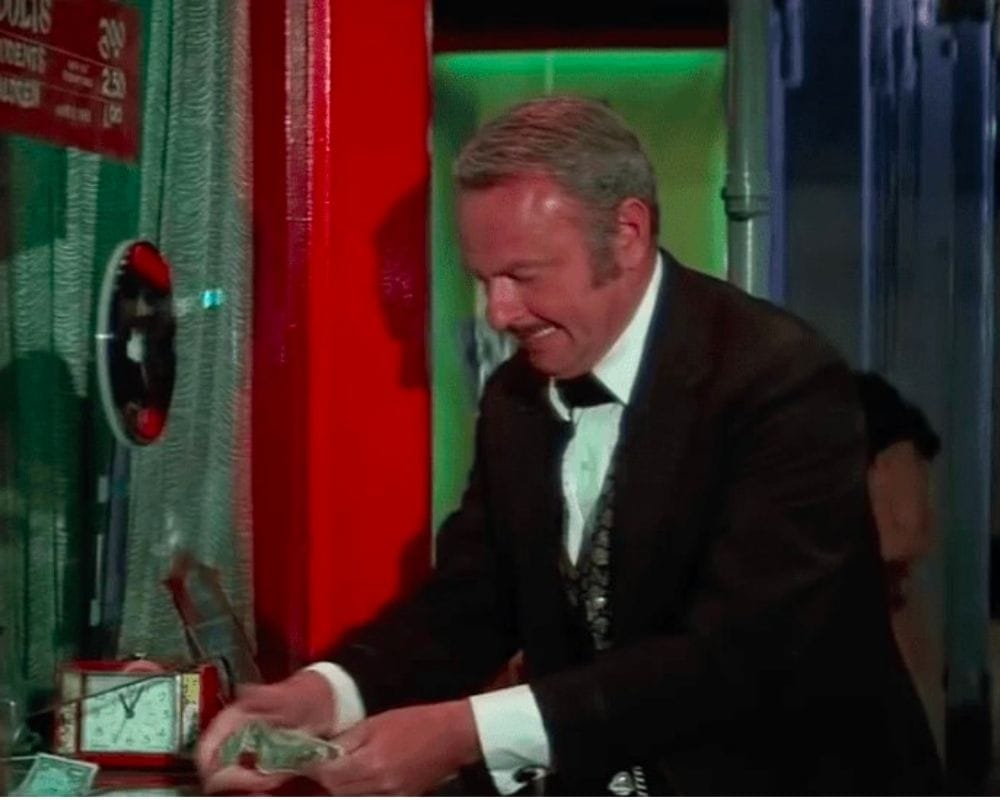
Shout It Out Loud
Writing the script for Blazing Saddles wasn’t made so simple since so many people were fighting for their creations to be implemented. Brooks said, “Blazing Saddles was more or less written in the middle of a drunken fistfight. There were five of us all yelling loudly for our ideas to be put into the movie. Not only was I the loudest, but luckily I also had the right as director to decide what was in or out.”
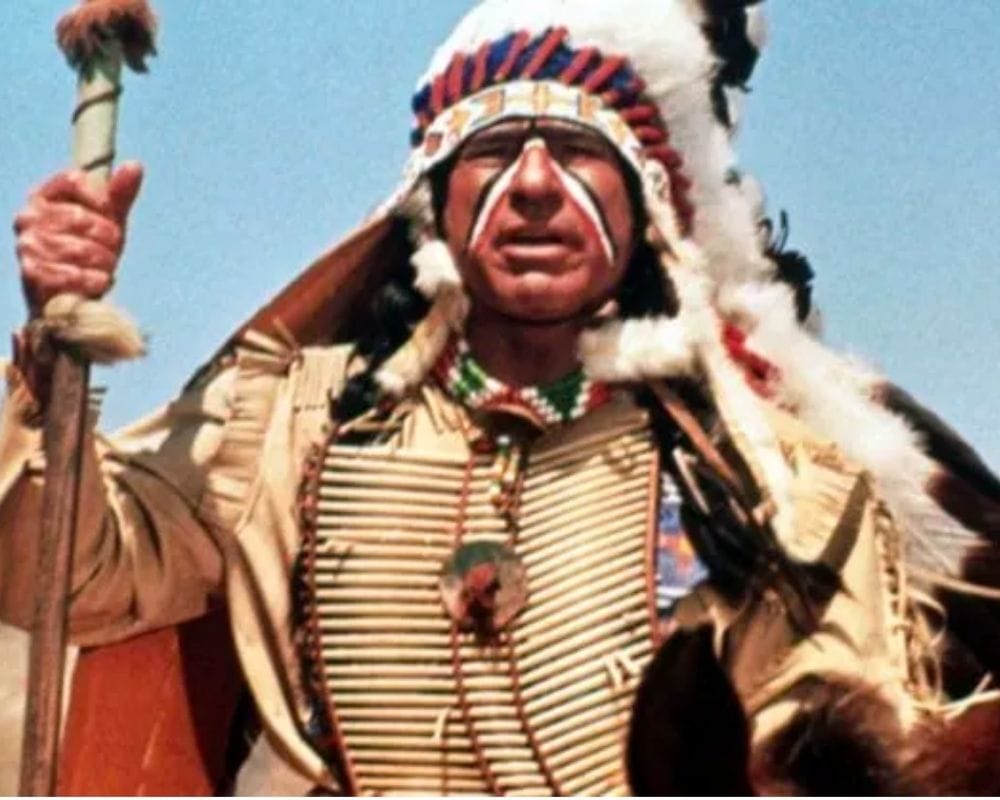
The Waco (Casting) Disaster
Having seen Gene Wilder play the iconic Waco Kid in the comedy, you cannot imagine the role to have been played by anyone else. However, Brooks initially offered the position to other actors, including Johnny Carson. The late-night television host turned down the role, and it was next given to Gig Young. Although he was to play the drunk Waco Kid on-screen, it seems his problems with drinking off-screen affected his performance on set, and he was then replaced with Wilder.
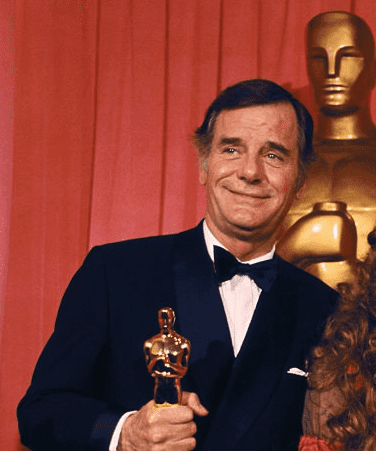
The Franchise That Never Was
Andrew Bergman was one of the key ingredients to Blazing Saddles’ success with his hilarious screenplay. After the movie became so successful, his work was used to create new material such as the TV series Black Bart. The pilot aired on April 4, 1975, and starred Louis Gosset Jr. as Bart. Amazingly, the show kept on filming despite never being seen by the public. This was because the show was being produced under the contract clause that it was an official sequel.
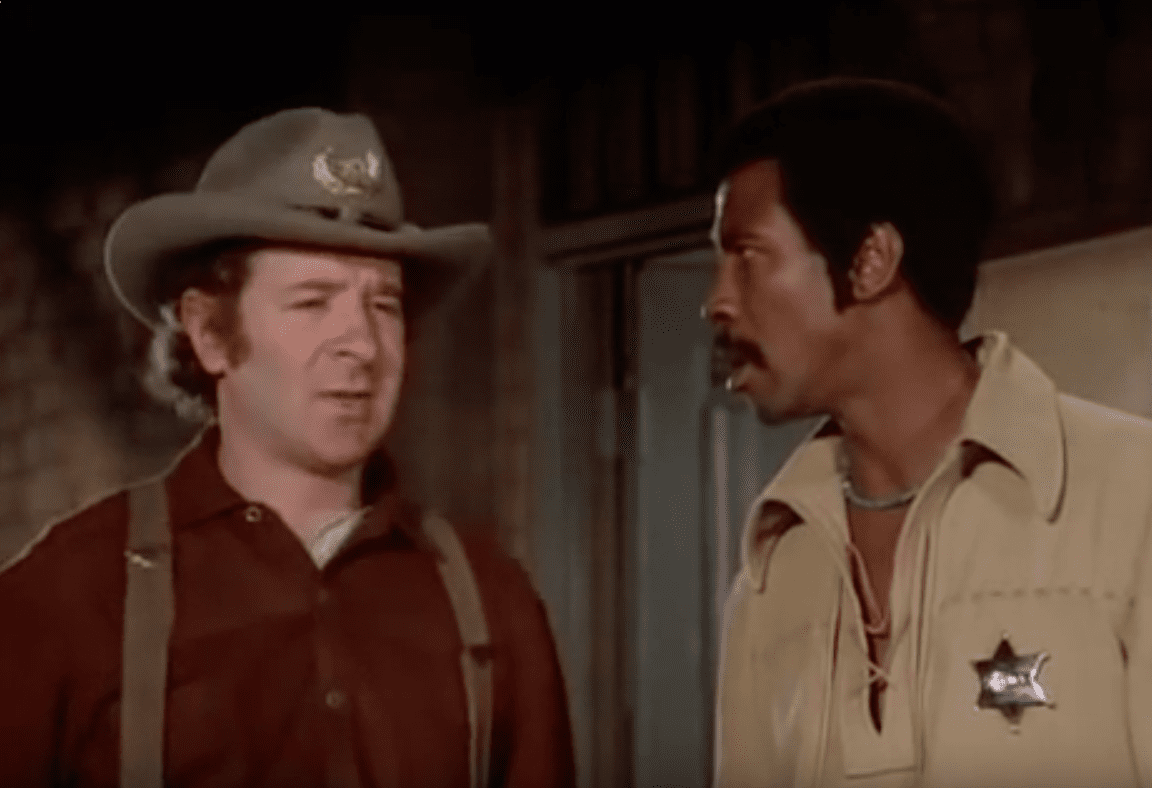
Bringing In A Comedic Genius
In between screenwriting for Blazing Saddles, Brooks was also in the middle of creating a TV show titled Your Show of Shows. He had the idea during his time in New York after watching Richard Pryor perform one evening at the Vanguard nightclub. After meeting the comedian, the pair hit it off, and Brooks offered Pryor a role. The rest was history and Pryor was the key to its success. He wrote most of Mongo’s dialogue.
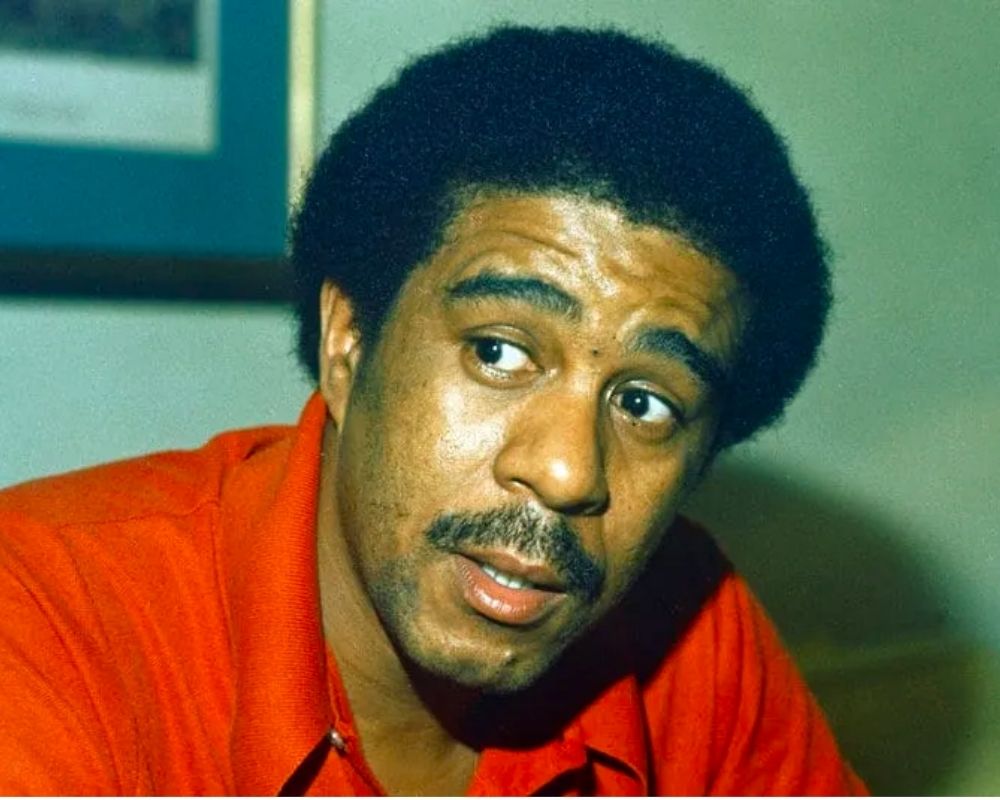
Mel Brooks’ Secret
Around the time when Mel Brooks took on Blazing Saddles, his son Max was born. Brooks was short on cash, so he felt compelled to make the movie work. Though he didn’t want to seem like a sell out, he said he felt like Charles Dickens in taking on a project just for the money.
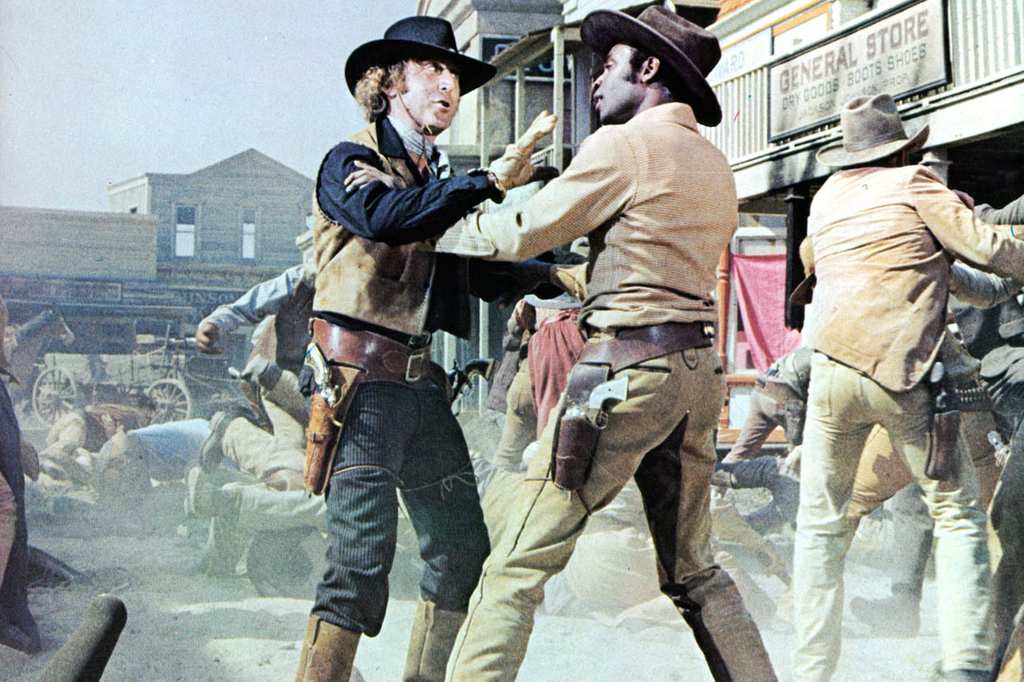
Fart Art
Just as Brooks carefully considered every word and reference in his script, he knew what he was doing when he included more than one fart reference in the film. His character, Governor Le Petomane, was named after a “flatulence artist,” Joseph Pujol who went by the stage name, Le Petomane. The French performer had an uncanny ability to pass gas on command due to his strong abdominal muscles. As for his name, in French, ‘peter’ means fart, and a ‘mane’ suffix means maniac, together making for a fart maniac.

Oscar Nominated
The Academy Awards are held every year and are awarded to those movies which have made a real impact. They usually are emotional and hard-hitting movies that really strike a chord – which is why Mel Brooks and the Blazing Saddles cast were definitely not expecting to win an Oscar for their comedic film parody. However, luck was on their side when Madeline Kahn was nominated as the Best Supporting Actress for her role as Lili von Shtupp! Even though she didn’t win, it was still a tremendous honor to be on the list.
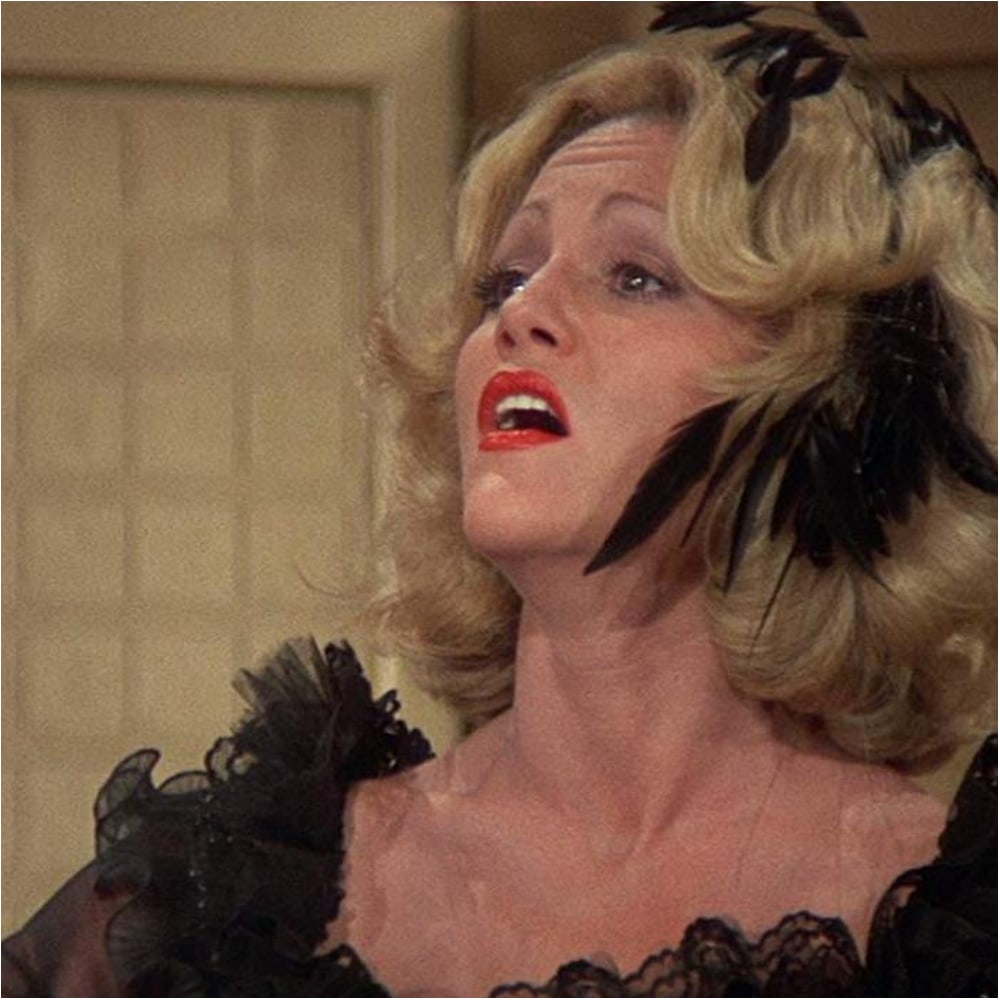
Perfect Impersonation
There’s a good chance that you’re familiar with George ‘Gabby’ Hayes if you are at all a fan of Western movies. As one of the legends of the Western genre, Gabby was an incredible actor with an impressive talent under his belt. During his casting search, Mel Brooks came across the actor Jack Starrett, who he soon realized could impersonate Gabby perfectly. This was the reason that Jack was given the role. Brooks told Jack that he wanted Jack to imitate the legend in their movie, and he did exactly as he was told.
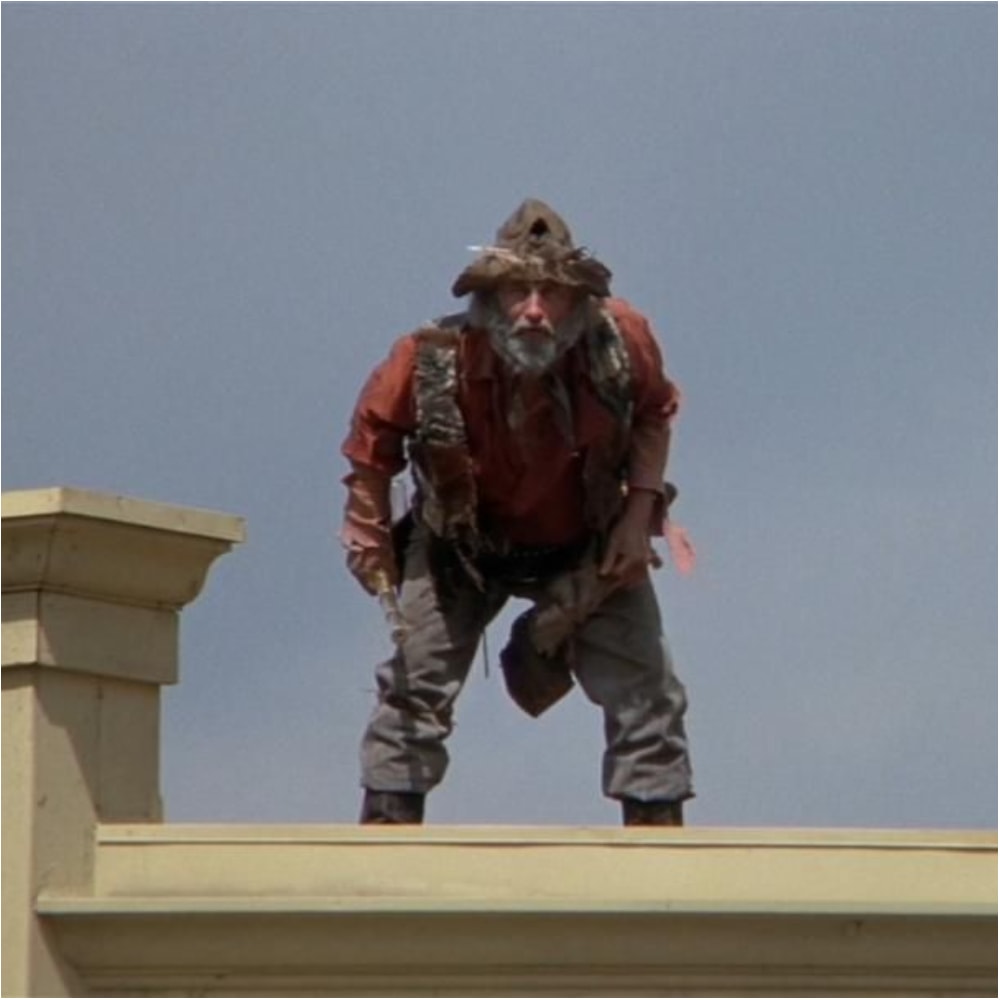
Famous Fans
Fans from across the world got in touch with Mel Brooks to thank him and express their appreciation for his movie, Blazing Saddles. Yet, it seems the response from one particular fan has overwhelmed him over more than any other. After learning that the legendary filmmaker, Alfred Hitchcock, had watched his movie, Brooks was keen to receive any feedback. Amazingly, Hitchcock loved it! Although their style of producing was different, Hitchcock thoroughly enjoyed the story and the production. Such a compliment!
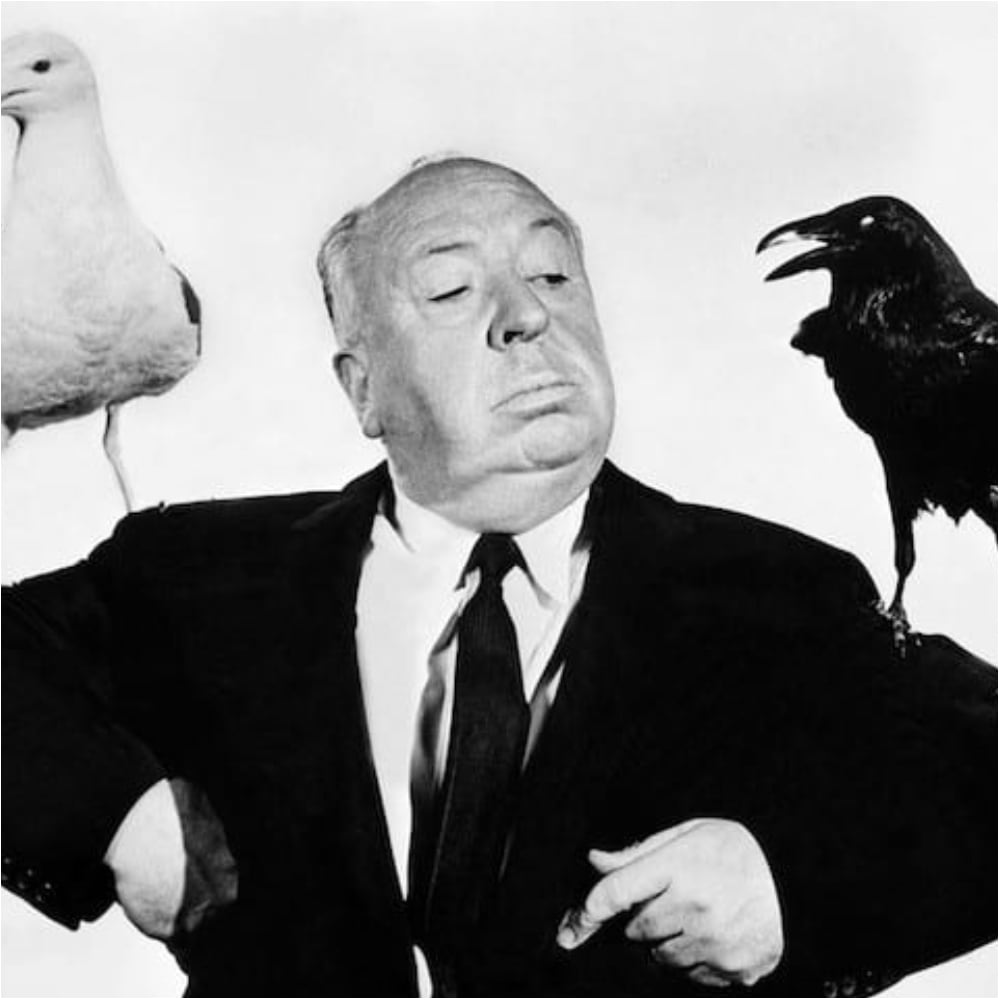
Empty Pockets
Mel Brooks and his team of writers set up their studio in an office that was situated on the 6th floor of a building on Fifth Avenue in the Big Apple itself. Although the six writers worked tirelessly to perfect and finetune the screenplay and produce the movie, we all know and love today, but Mel Brooks was the only one who got compensation for his work. Brooks walked away with a cool $50,000, while the others walked away with empty pockets, which is very disappointing.
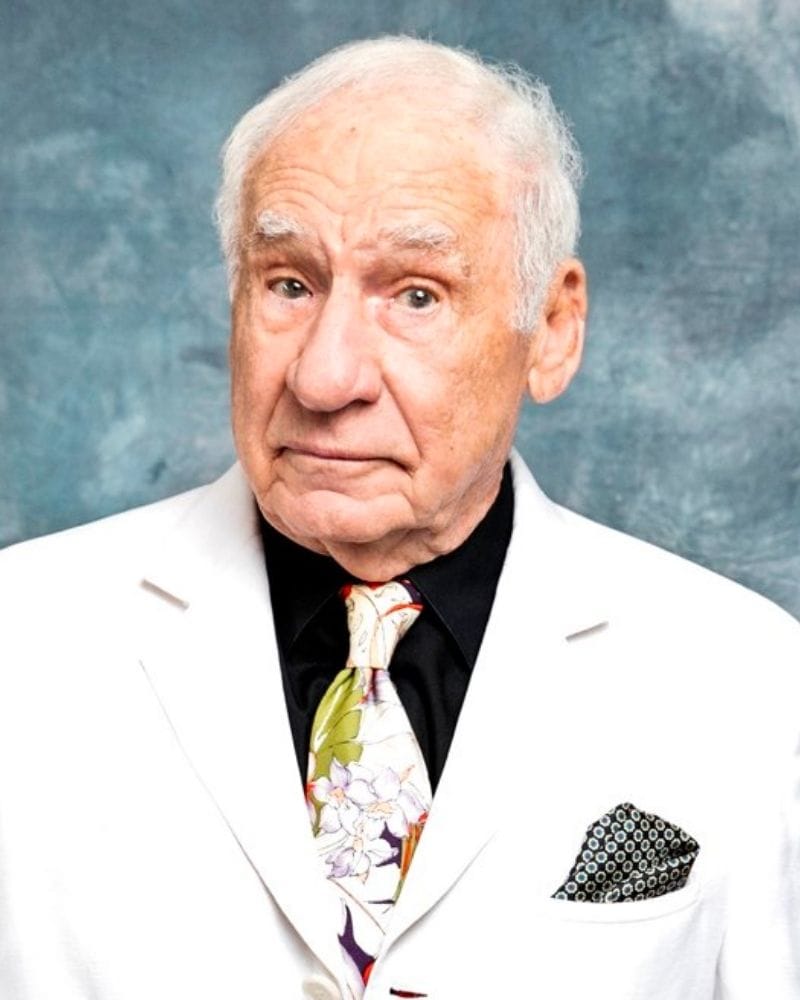
Good Connections
Mel Brooks has connections with some of the biggest names in the world of Hollywood, and his relationship with the renowned movie editor, John C. Howard, was second to none. The pair has worked on many of Brooks’ movies together, and he even helped when it came to editing Blazing Saddles. Along the way, Howard gave Brooks advice that garnered him one of the best shots for him to edit, and they left each other to get on with their jobs in perfect formation. This worked out for the best!
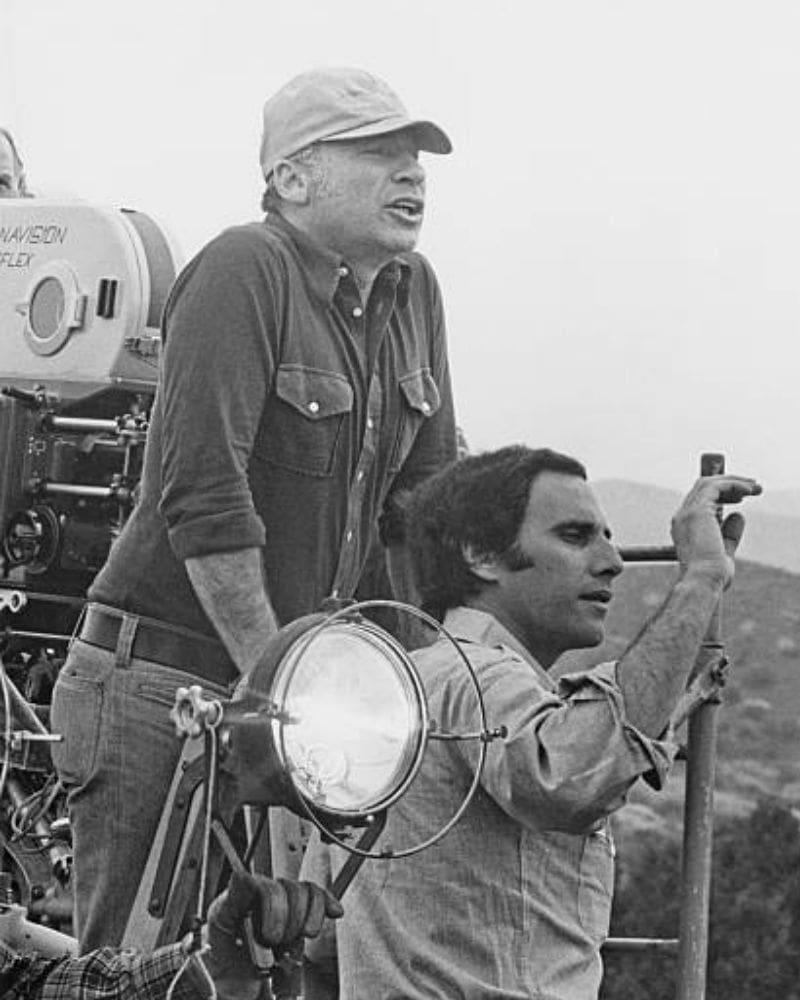
Mel’s Son Max
Here’s an interesting tidbit that many people may not have heard of. Mel Brooks’ son, Max Brooks, was actually born during the time that Mel was writing the movie. In case you don’t know, Max Brooks is the author of the well-known novel, World War Z. Who knows, maybe the brilliance and special writing skills of Blazing Saddles were passed on to Max when he was born, and that’s what enabled him to eventually become a successful writer as well.
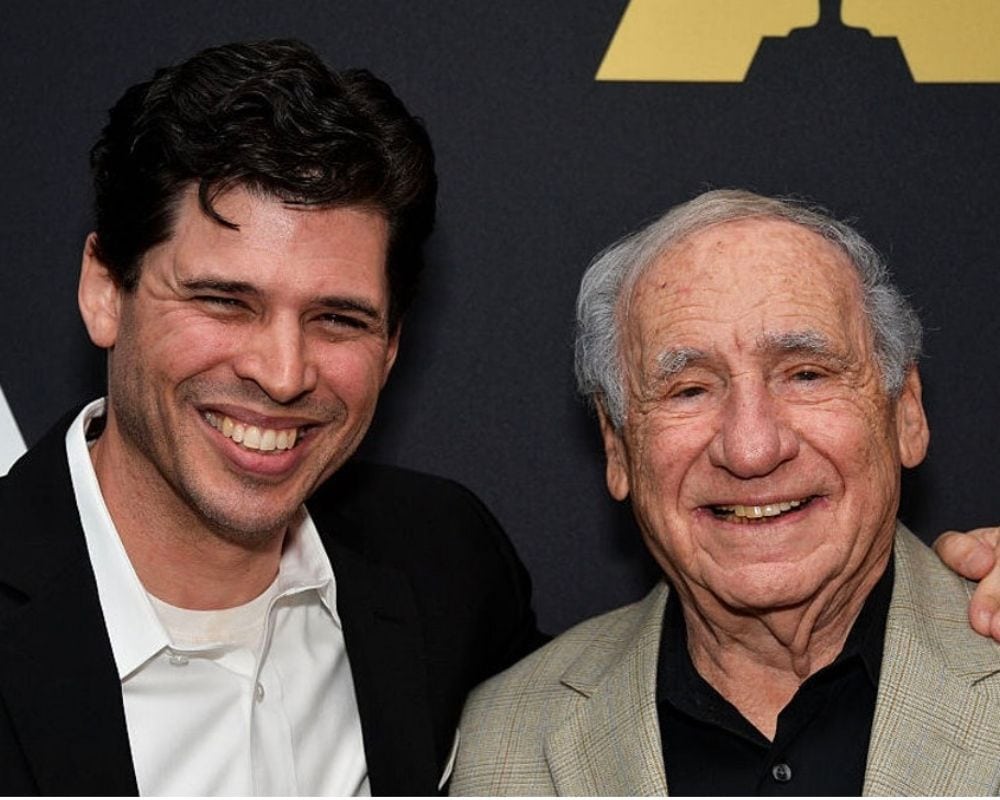
Mufasa As Bart
We’re all familiar with sheriff Black Bart, and it’s really near impossible to imagine him being portrayed by anyone other than Cleavon Little. But it’s interesting to know that Black Bart was almost played by another legendary actor James Earl Jones, who is now best known for supplying the voice of the formidable voice of Mufasa in the Lion King as well as the Star Wars villain, Darth Vader. We can’t imagine it but it would have been another movie entirely!
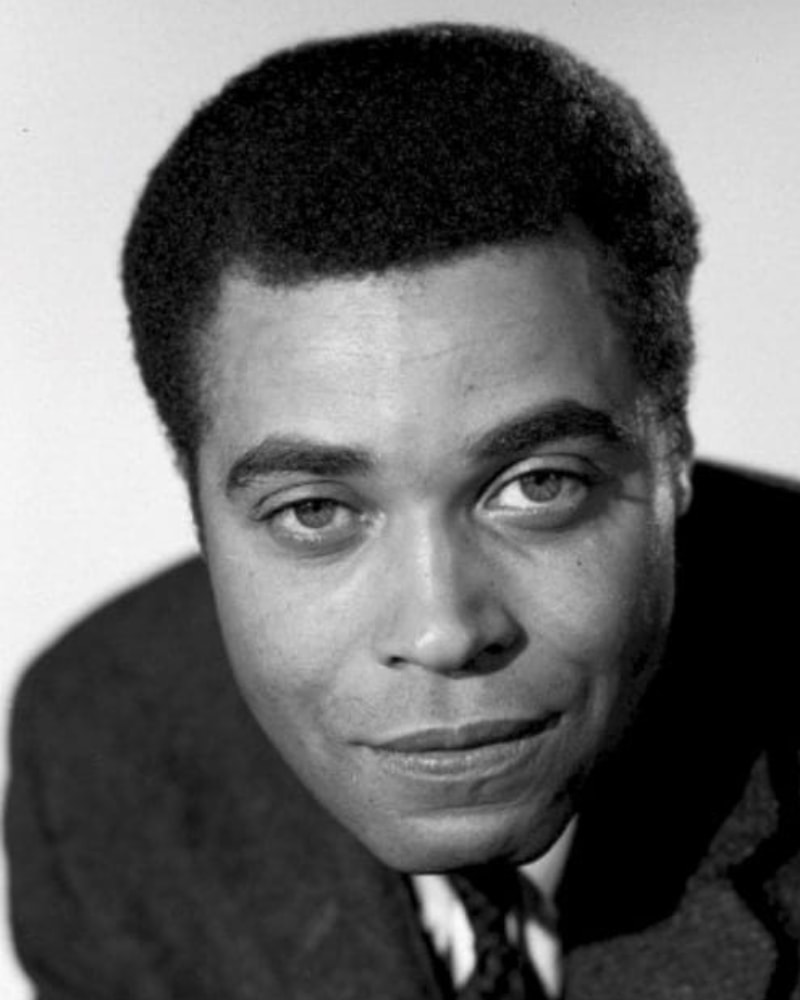
American Comedy
This little fun fact is less of a behind the scenes fact, but rather a piece of information that some people don’t know – even though they should. If you’re a hardcore fan of Blazing Saddles, you will brim with pride to know that the movie was named in the year 2000 to be the sixth greatest American Comedy of all time, but the American Film Institute. And another tidbit, former New York Mayor Mike Bloomberg, called it his favorite movie of all time.
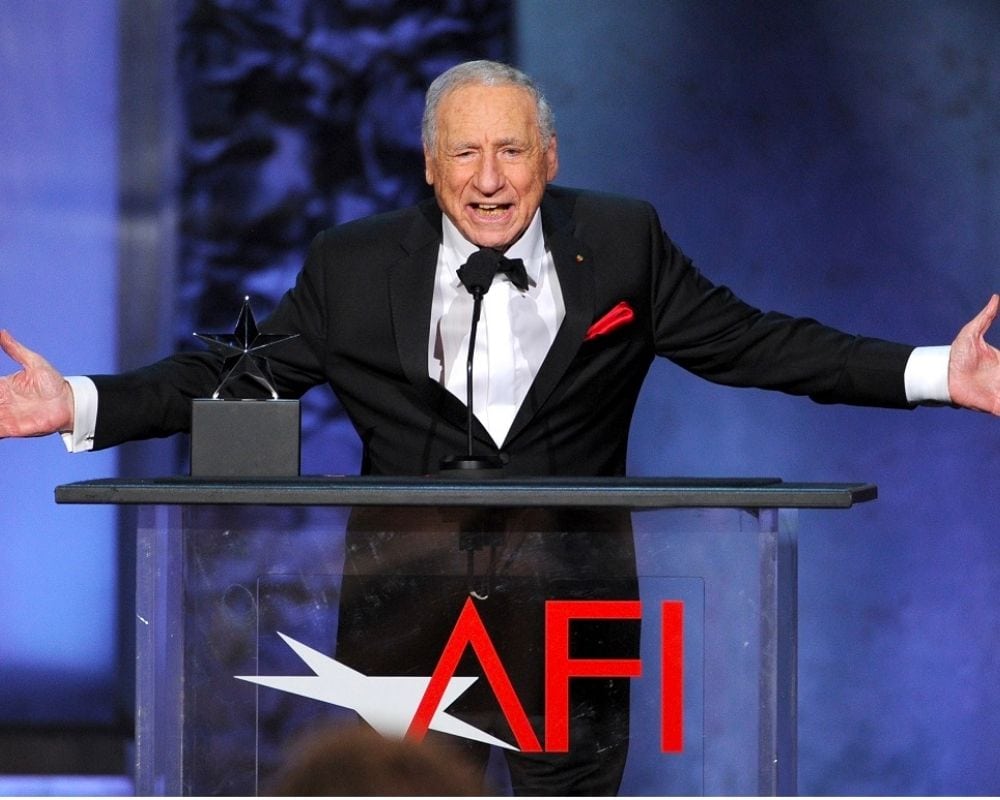
Cultural References
Whenever a film gets made, there is always going to be a unique relationship between the maker and the consumer. Brooks assumed people would get the movie’s many cultural references, saying, “I always thought the audience would be as smart as the filmmakers. When Black Bart does the Agincourt speech from Shakespeare’s ‘Henry V’ with an interpolated lyric from Cole Porter’s ‘You Do Something to Me.’ ” And while he was undoubtedly right a lot of the time – with this reference it wasn’t the case.
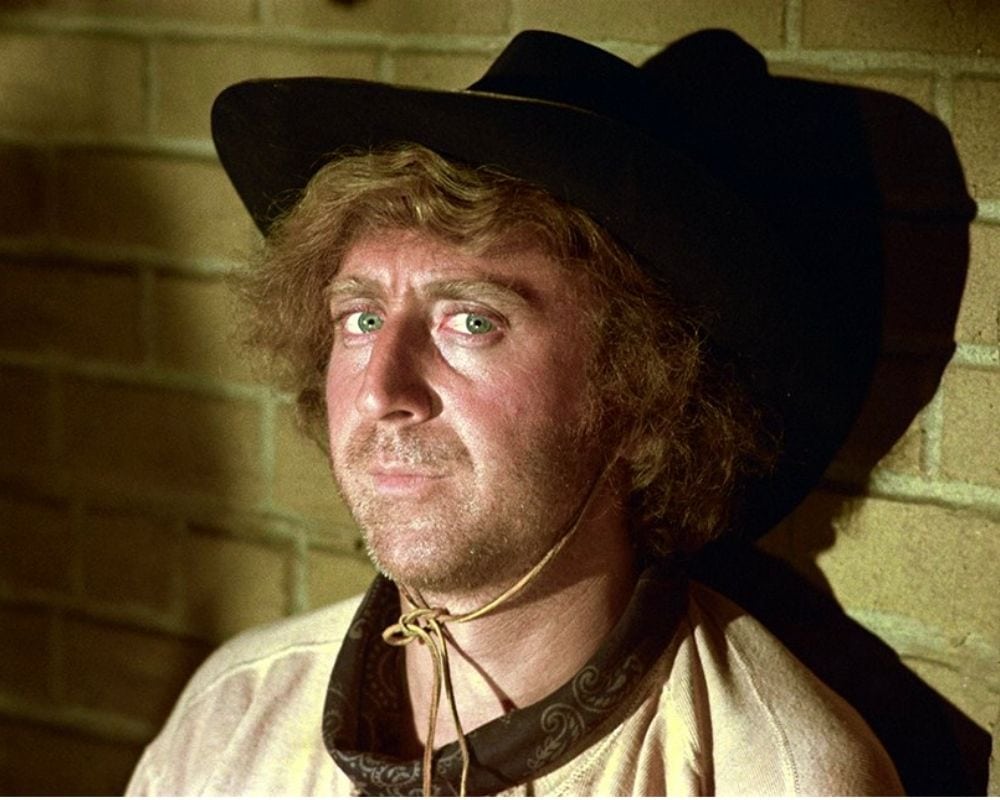
How It All Began
We’ve been revealing so much about what happened behind the scenes after the filming began, but we haven’t yet made known how the entire idea for the movie took place. It all started when Mel Brooks was walking down the streets of New York, trying to think of his next big project. He had just worked on The Producers and The Twelve Chairs, but they hadn’t made him enough money, and he was desperate to get by. That’s when he heard a voice say, “Mel.”
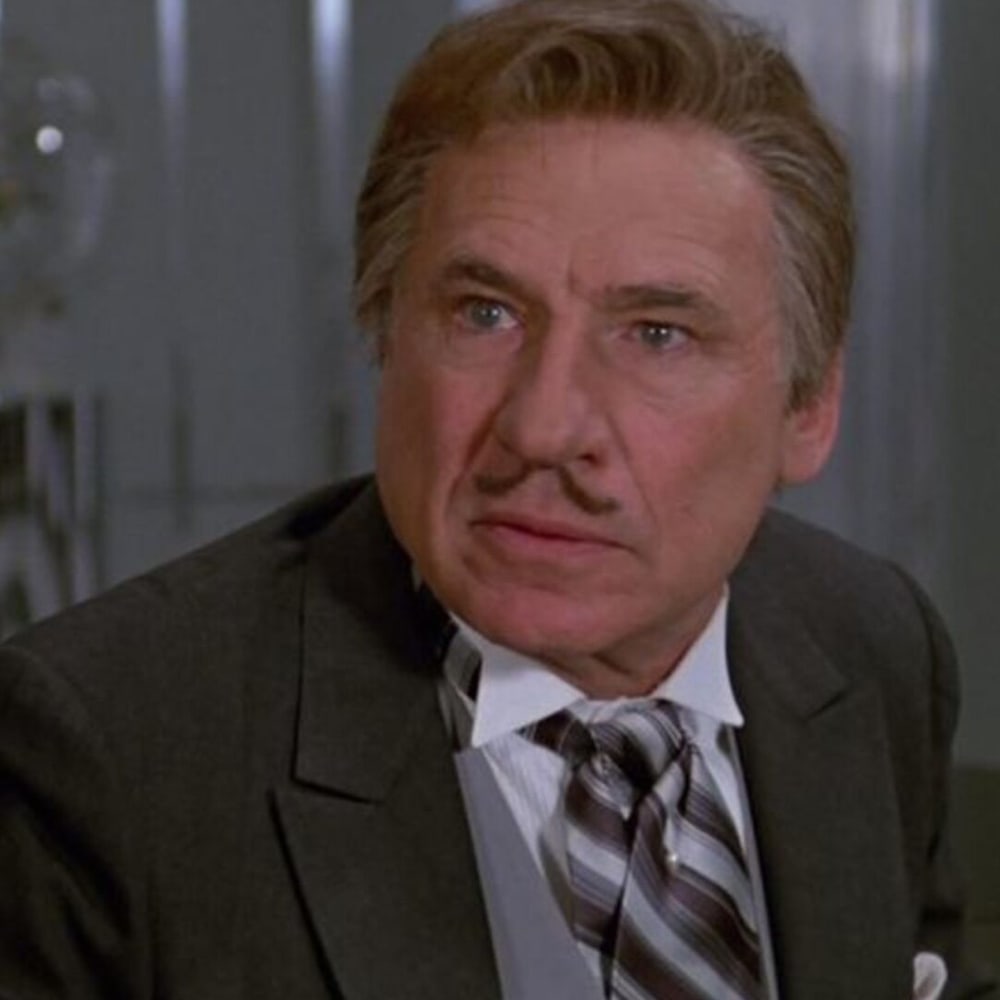
Old Friends
That elusive voice which had called his name on the street was none other than David Begelman, the founder of talent agency Creative Management Associates. The two also happened to be old friends, and David invited Mel out to lunch. He then explained that he had a rough draft of a project called “Ted X.” David wasn’t sure what to do with it, and he felt like the movie concept had a “Mel Brooks” feel to it.
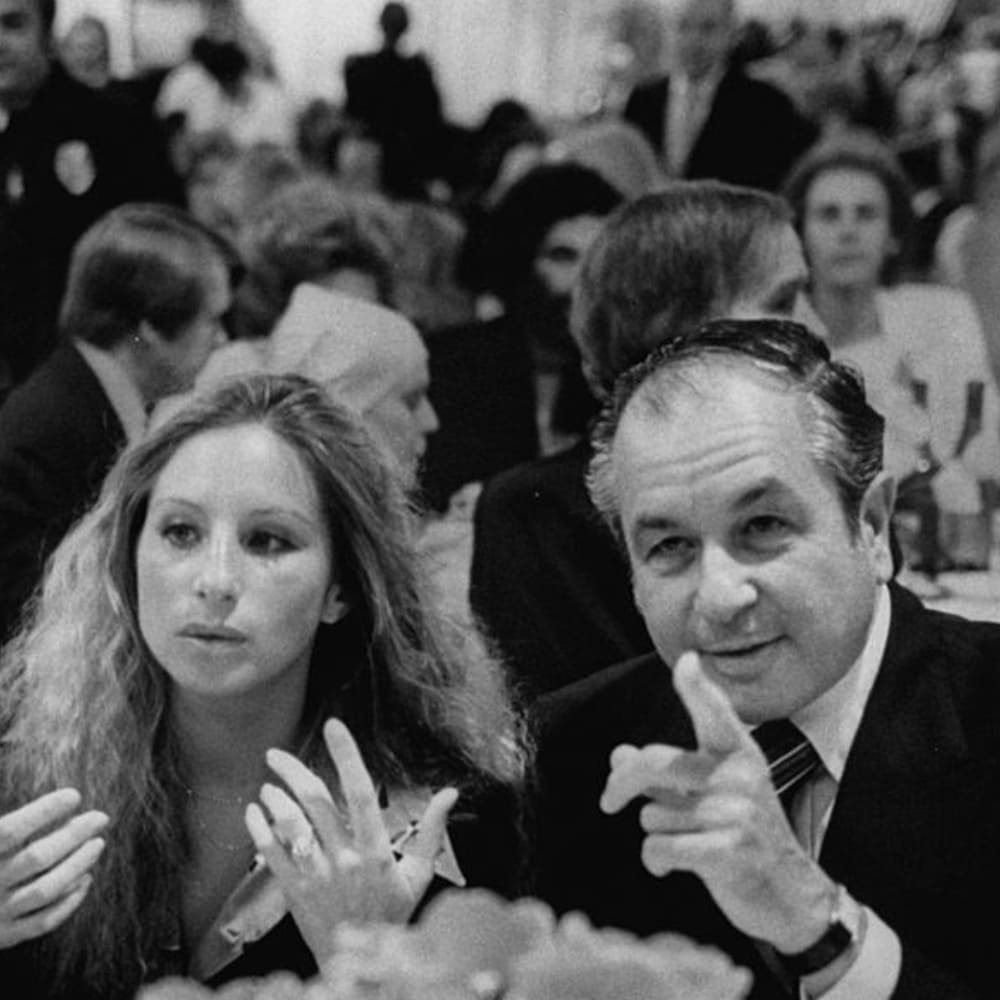
He Had To Write It Himself
Because Brooks needed a break and some form of income, he jumped at the opportunity and agreed to take the project. But he had a condition: He wanted to write the film himself (he would later bring on other writers, but he wanted to be the chief writer). Then the name of the film would get changed from “Ted X” to “Black Bart,” and finally – to Blazing Saddles. It’s interesting to wonder how successful it would’ve been had the name not been changed.
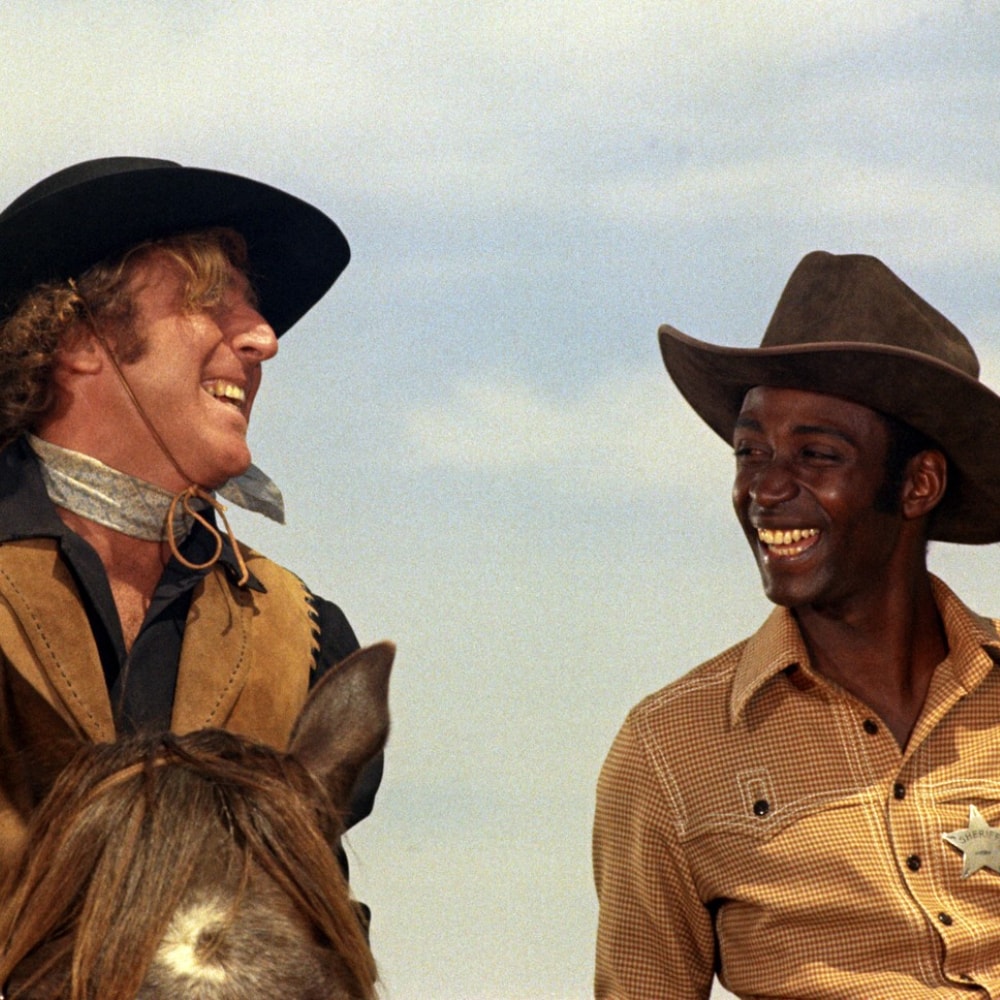
Music Musical Chairs
Brooks has always been a creative genius when it comes to doing things differently. This certainly applied when he wanted to use foreground music instead of what was more commonly used – background music. As a result, he chose one of the best band leaders out there: Count Basie. He utilized Basie and his band to play the song “April in Paris” in the movie. Amazingly, Brooks also composed the theme song of the movie, which ended up being sung by Frankie Laine.
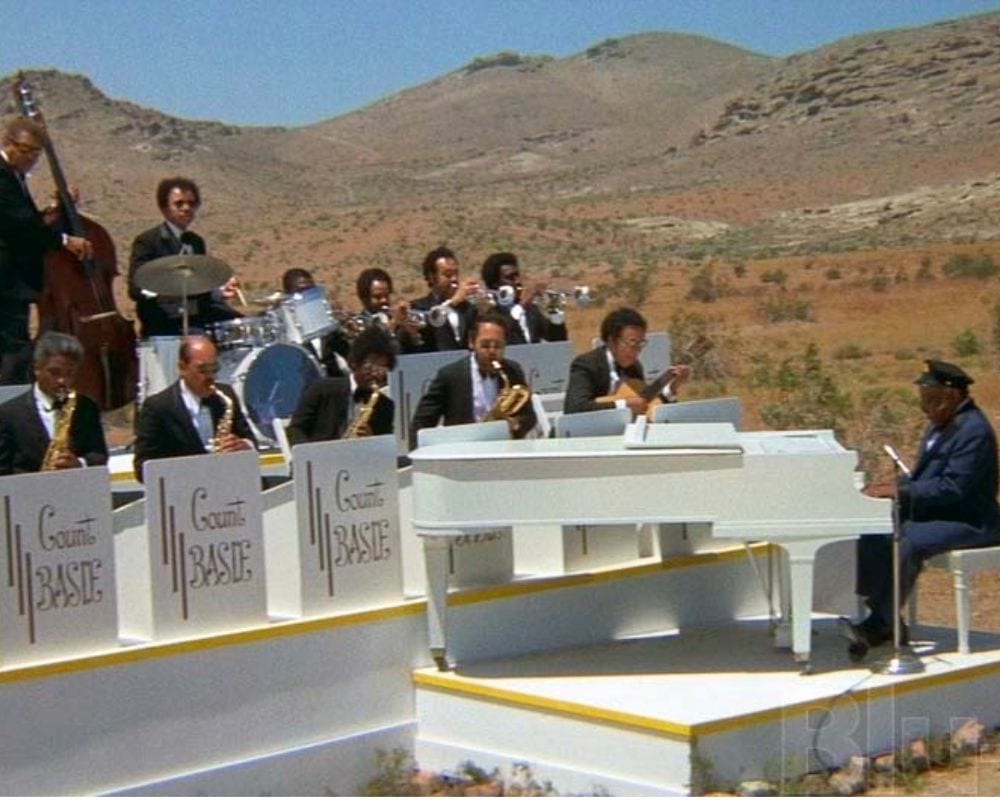
Whatever Helps You Sleep At Night
Chief executive Ted Ashley was not pleased after Brooks screened the film for Warner Brothers. Ashley cornered Brooks and commanded, “You have to do the following: take out (the N-word), take out the bean scene, punching a horse, the Lili von Shtupp and the black sheriff ‘you’re sucking my arm,’ or something. You’ve got to take it all out.” Brooks replied, “Great! They’re all out,” only instead of doing as he was told, he threw out all the notes and walked away.
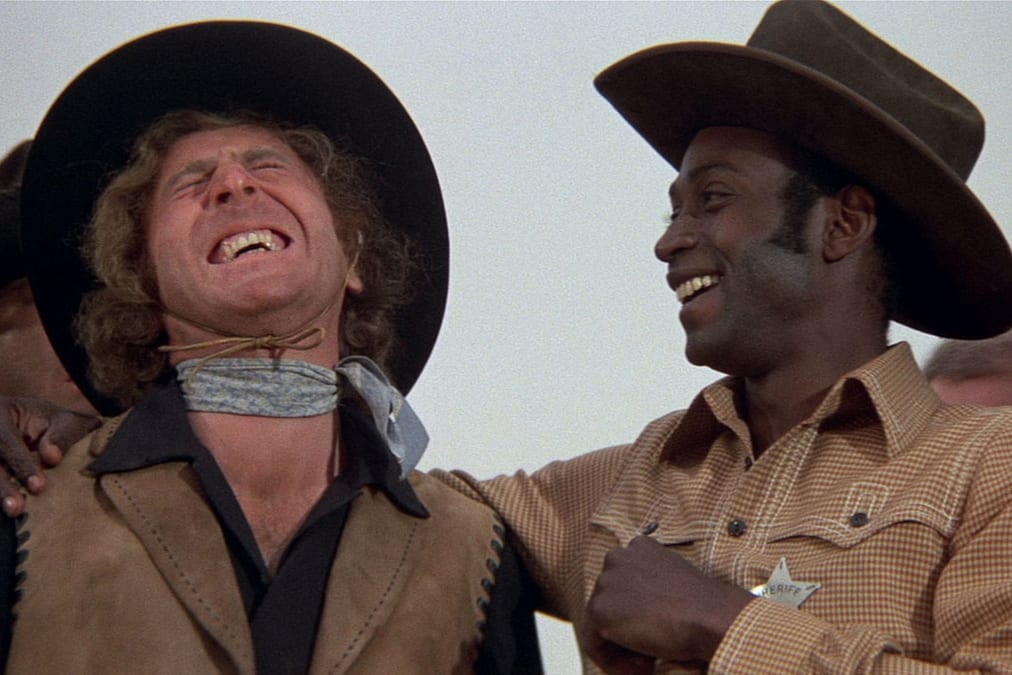
You’re Fired!
Madeline Kahn had been booked for the film adaptation of Mame prior to the beginning of filming for Blazing Saddles. Mame was being adapted from the Broadway musical and starred Lucille Ball alongside Bea Arthur. Just a day before her work on Blazing Saddles began, Madeline was fired from Mame. Ball claimed that Kahn had was aiming to get fired by giving a bad performance so she could focus on playing Lili von Shtupp.
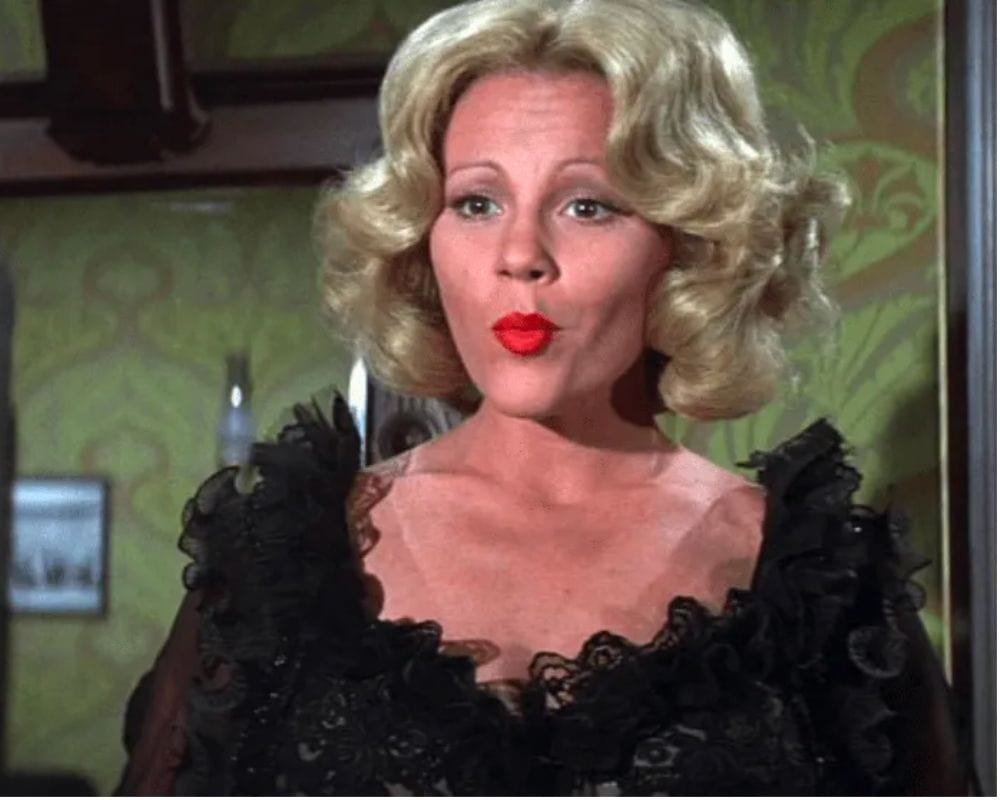
Getting The Boot
In the first round of shooting, the Waco Kid was played by Gig Young. One of the early scenes shot was when the Waco Kid hung from his bunk, intoxicated, and berates Bart. Upon viewing the scenes, you might think that Young is an amazing actor for acting drunk so accurately. However, the truth was, he was actually drunk, to the point where production had to be stopped. Gig was booted, and Gene Wilder replaced him. Years later, Young filed suit against the studio for breach of contact.
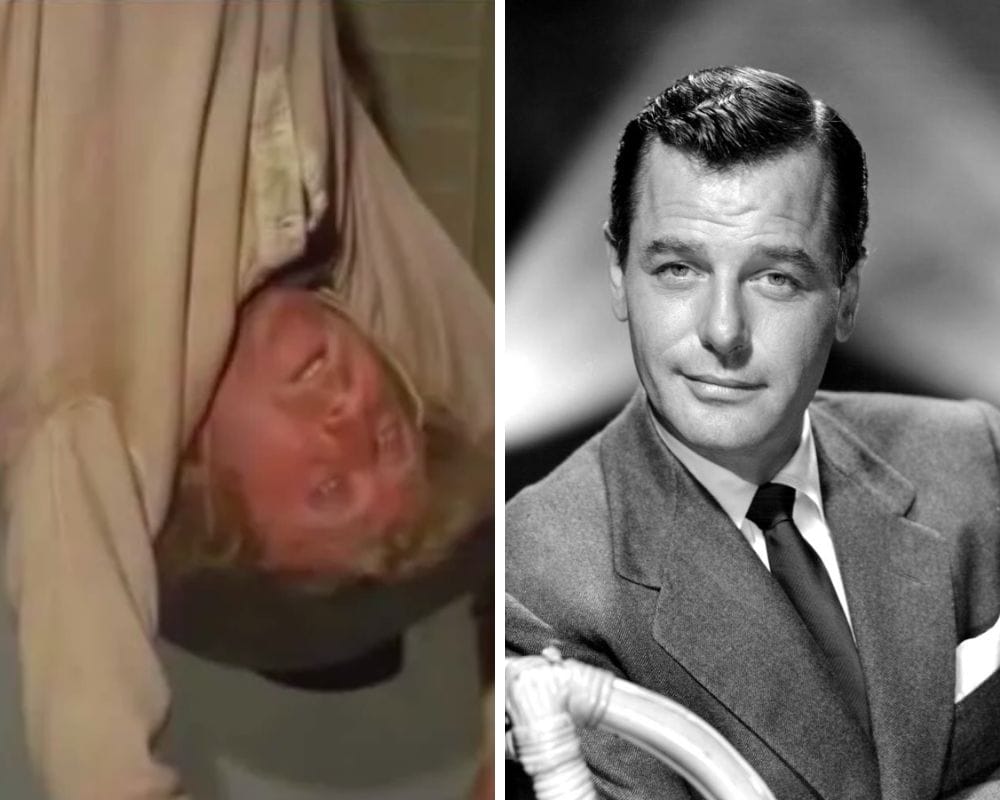
Not In The Script
The comedy was, of course, iconic for all its witty and hilariously written lines, but there was one line that stood out. After the townspeople showed hatred towards Bart, Waco Kid consoled him by explaining: “You’ve got to remember that these are just simple farmers. These are people of the land. The common clay of the new West. You know… morons.” This last part of the line – “you know… morons” – was ad libbed and the improvisation caused Cleavon Little to genuinely crack up.
